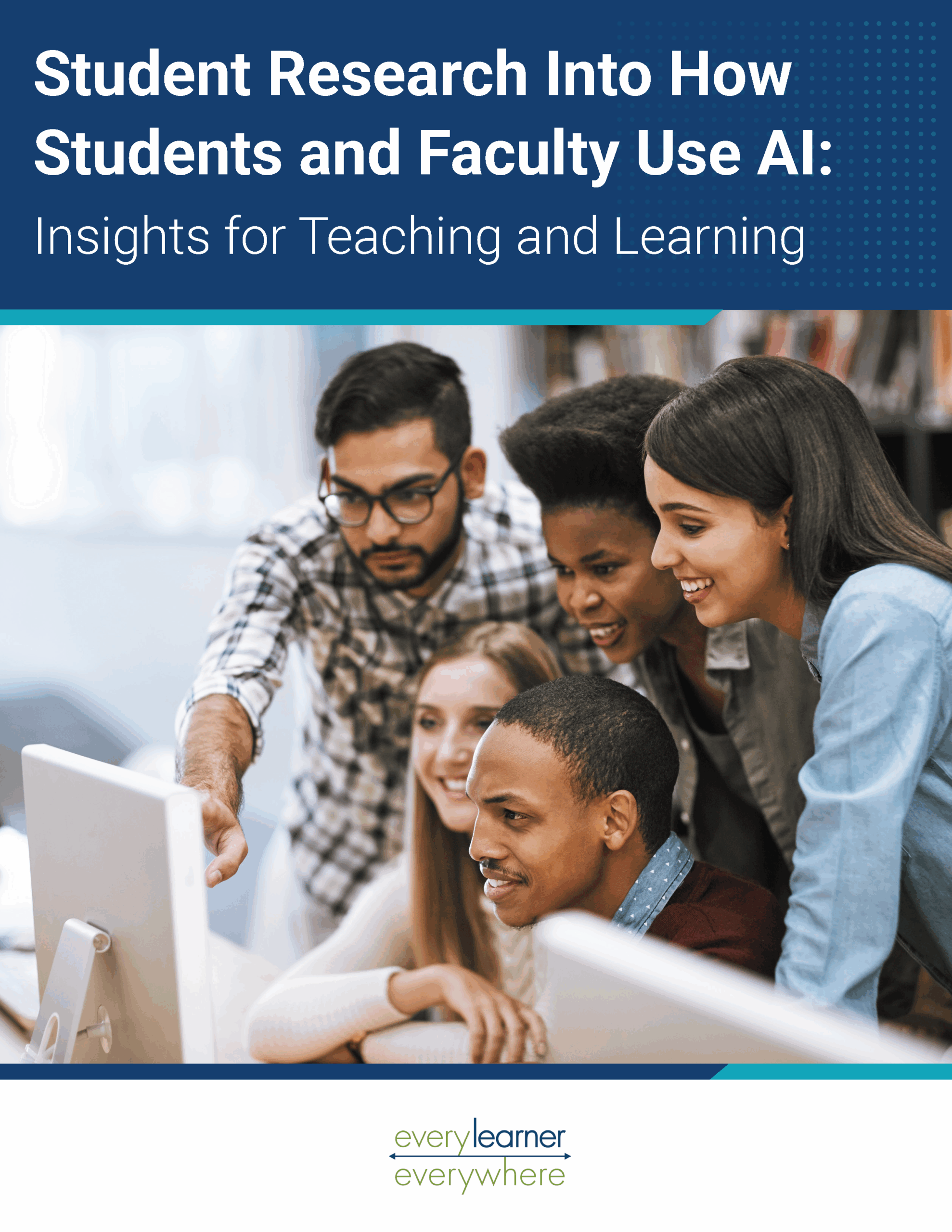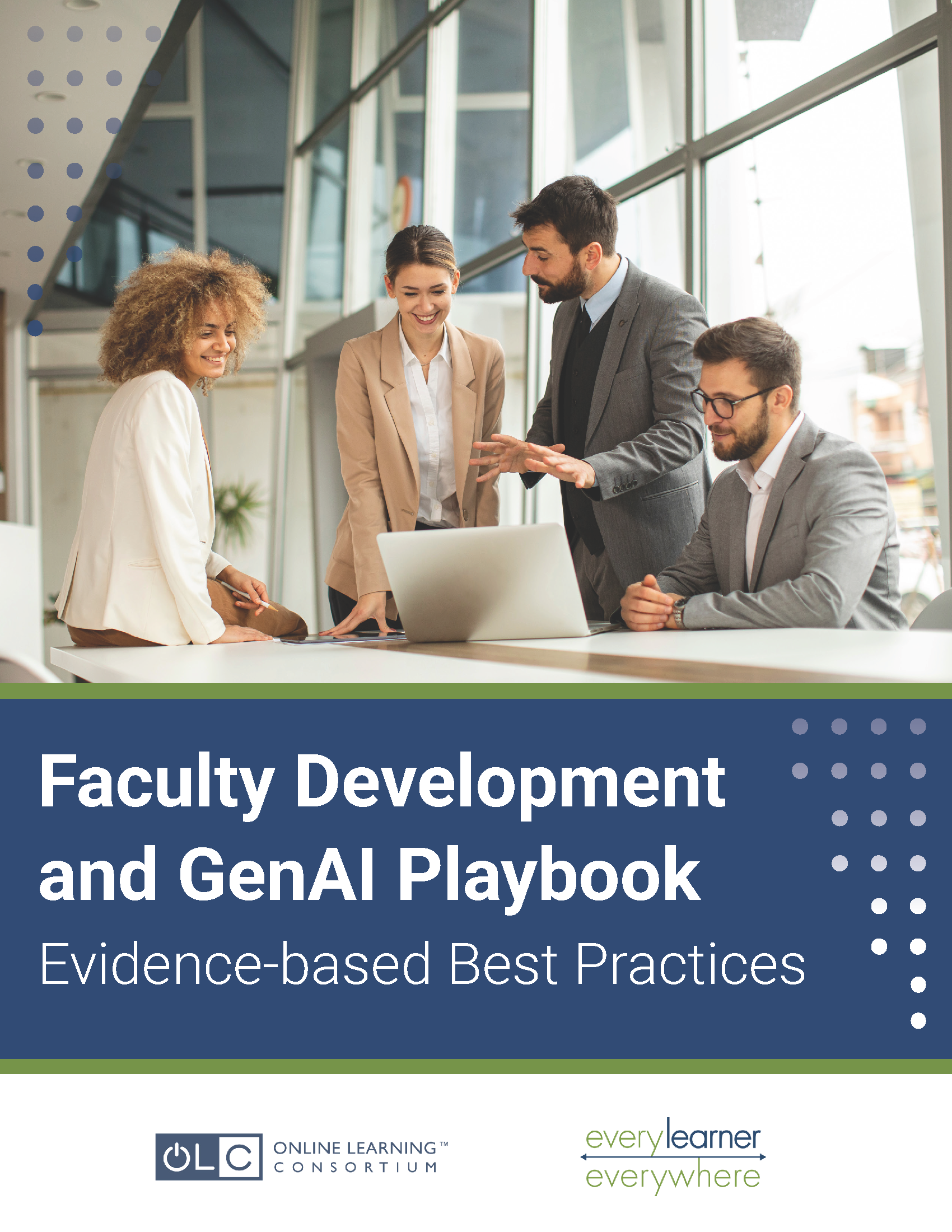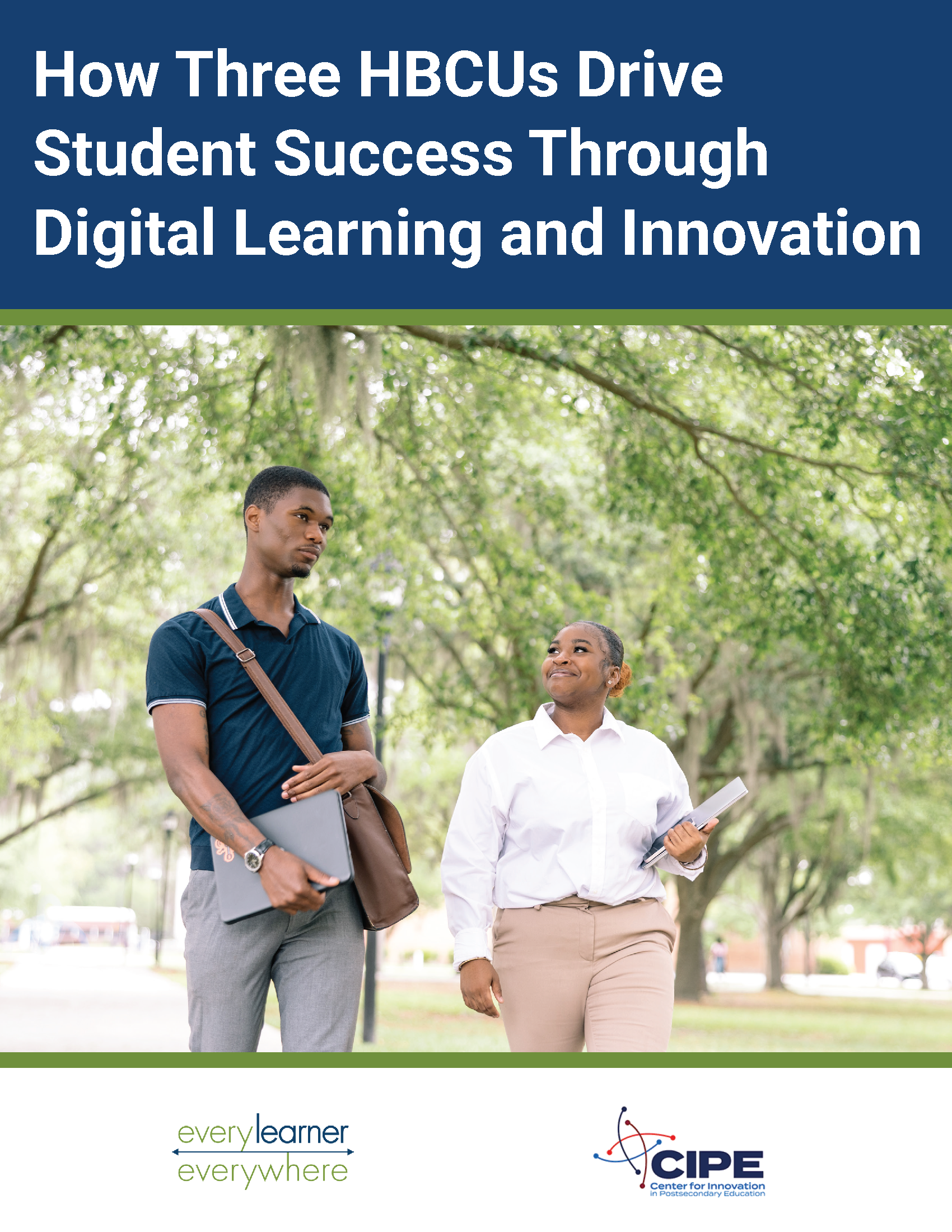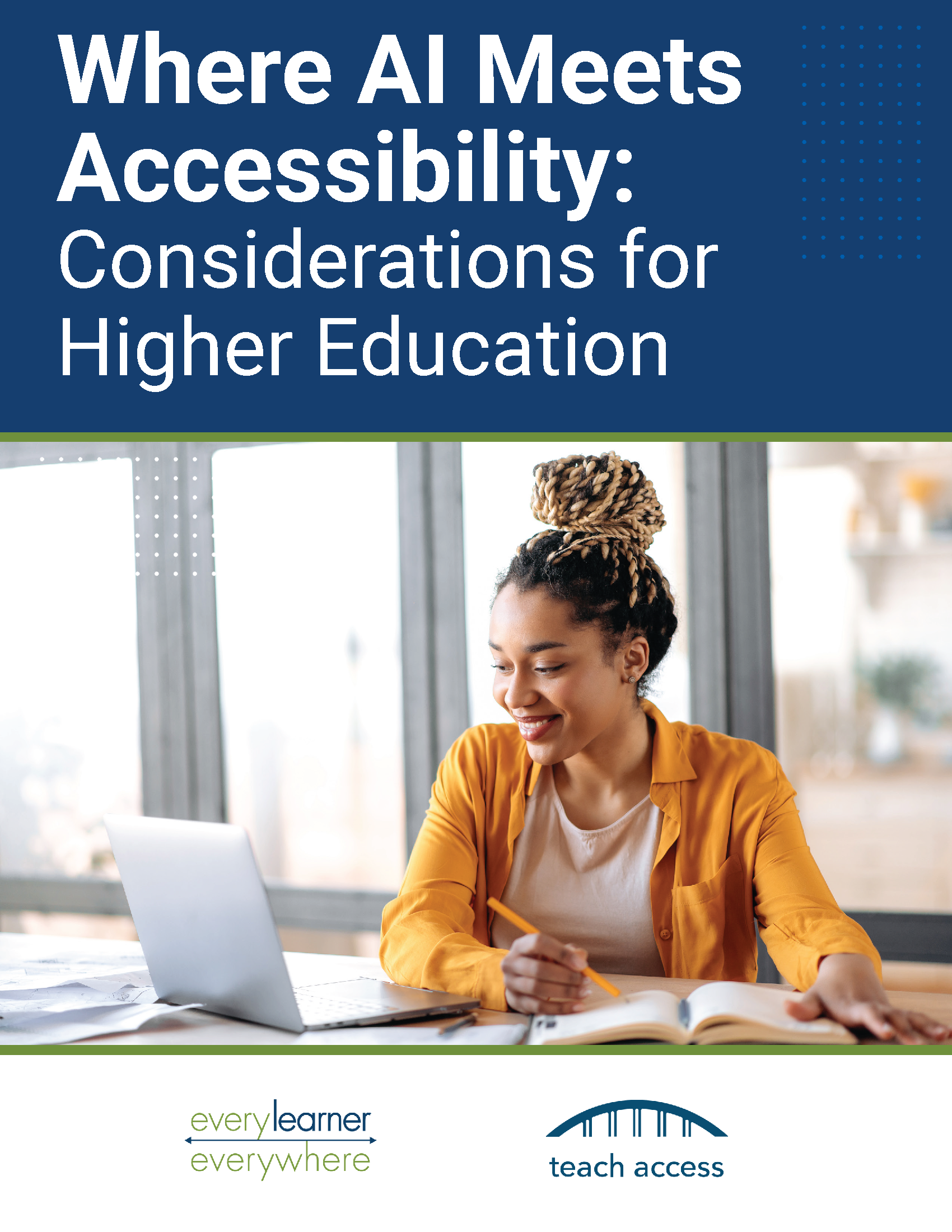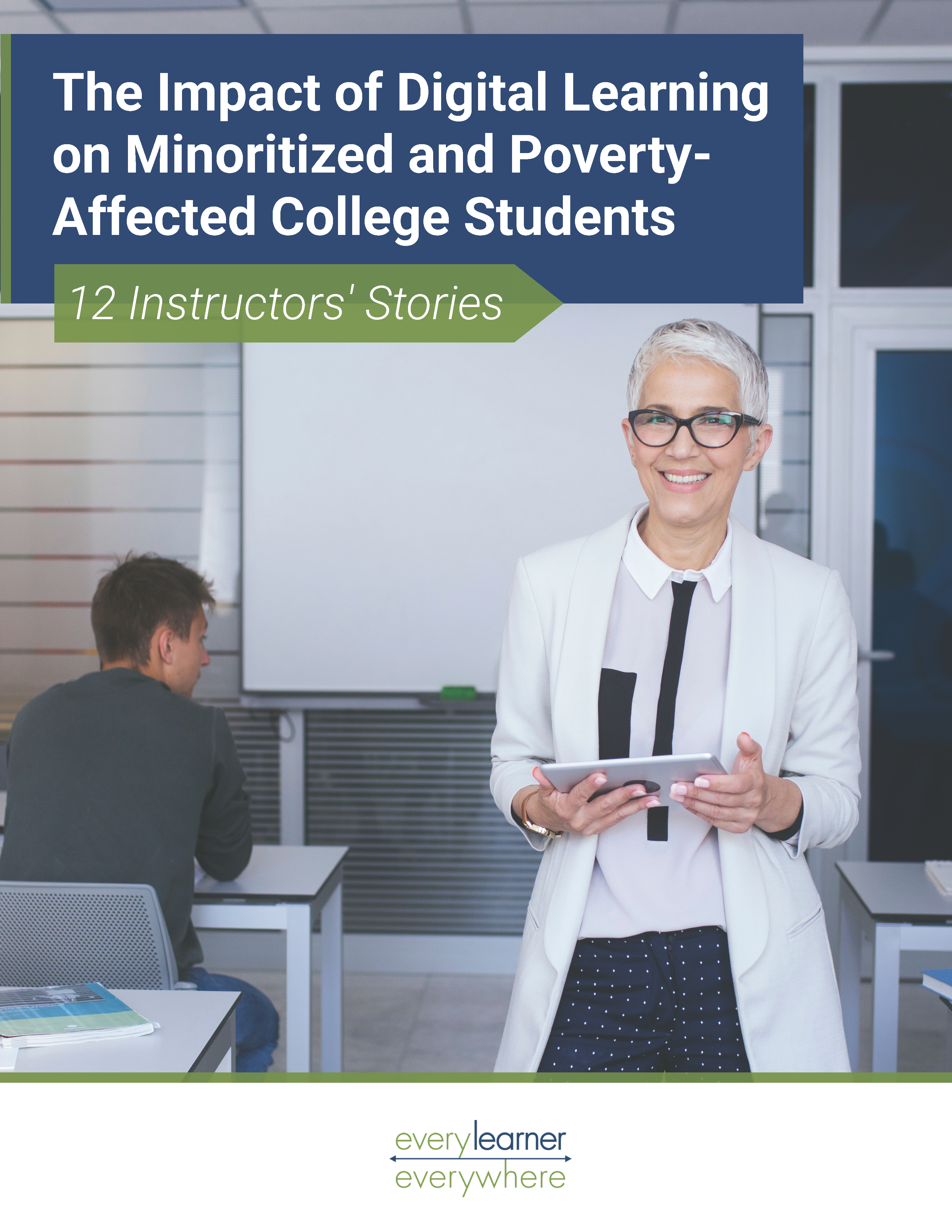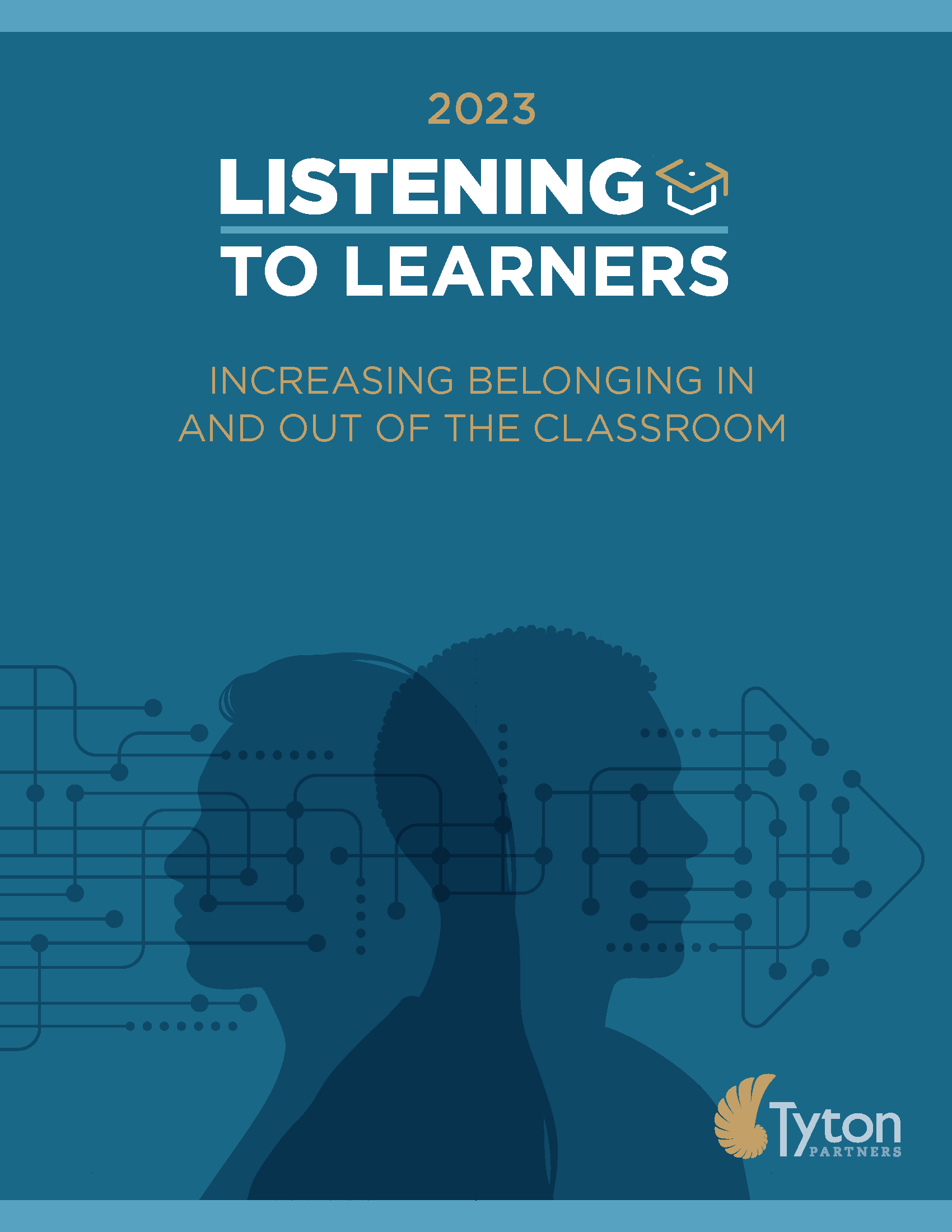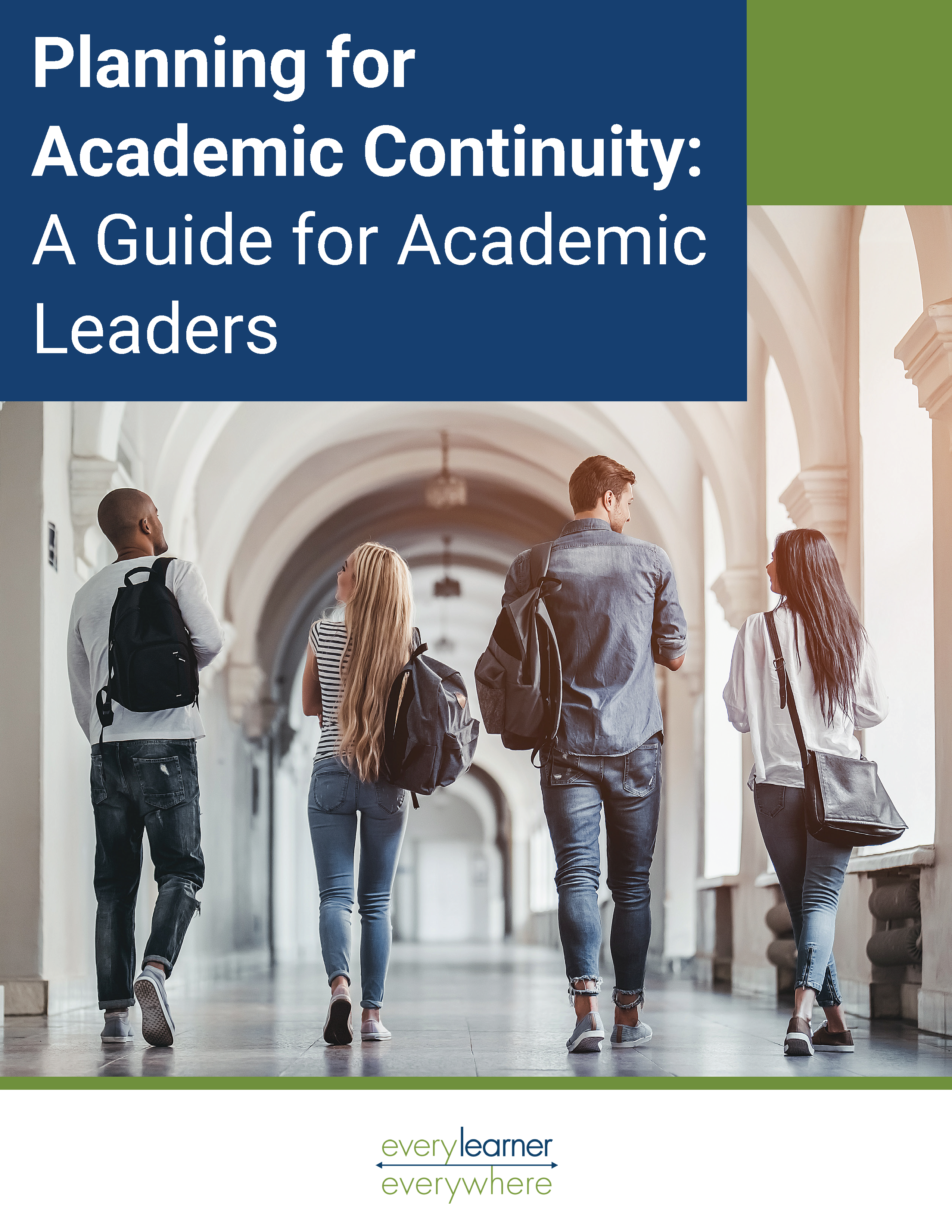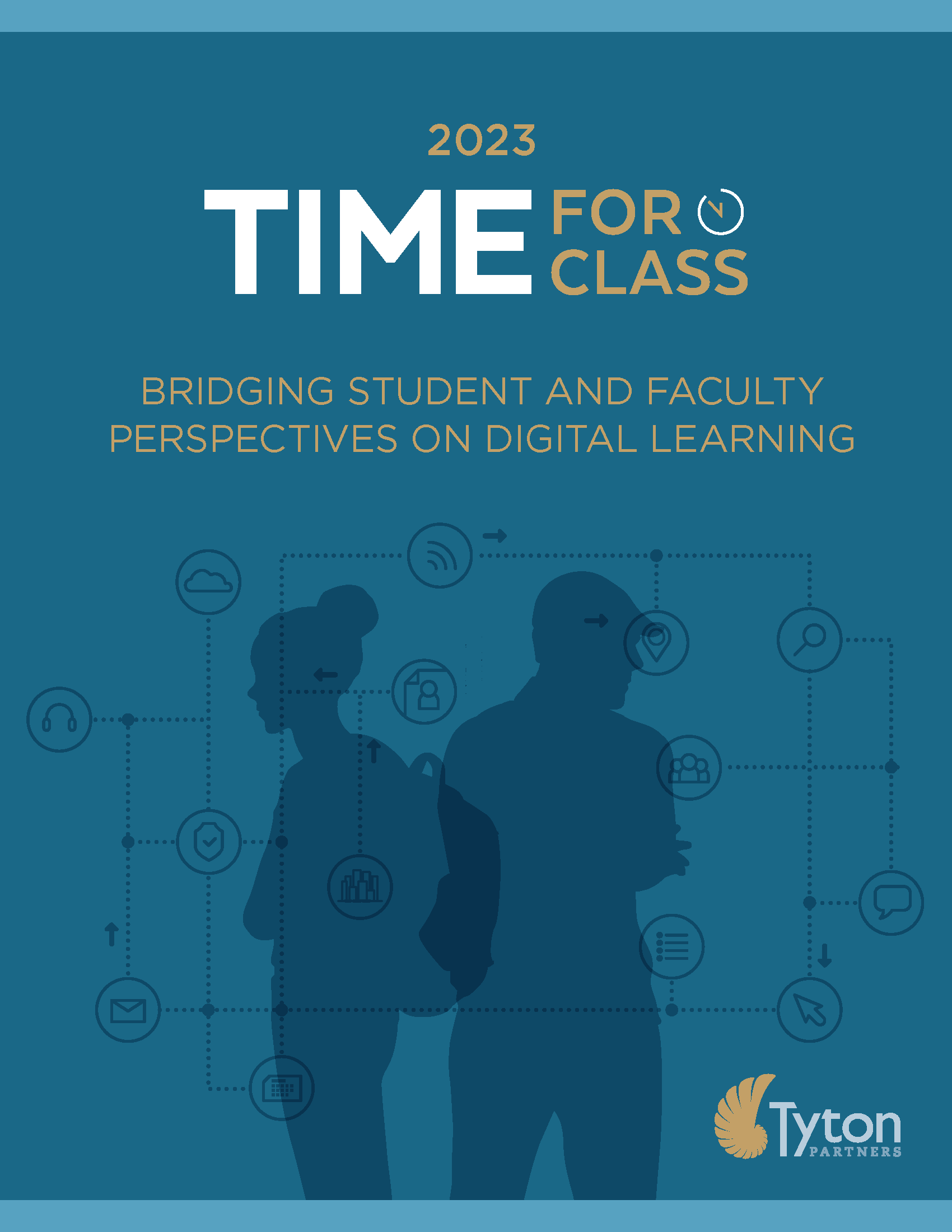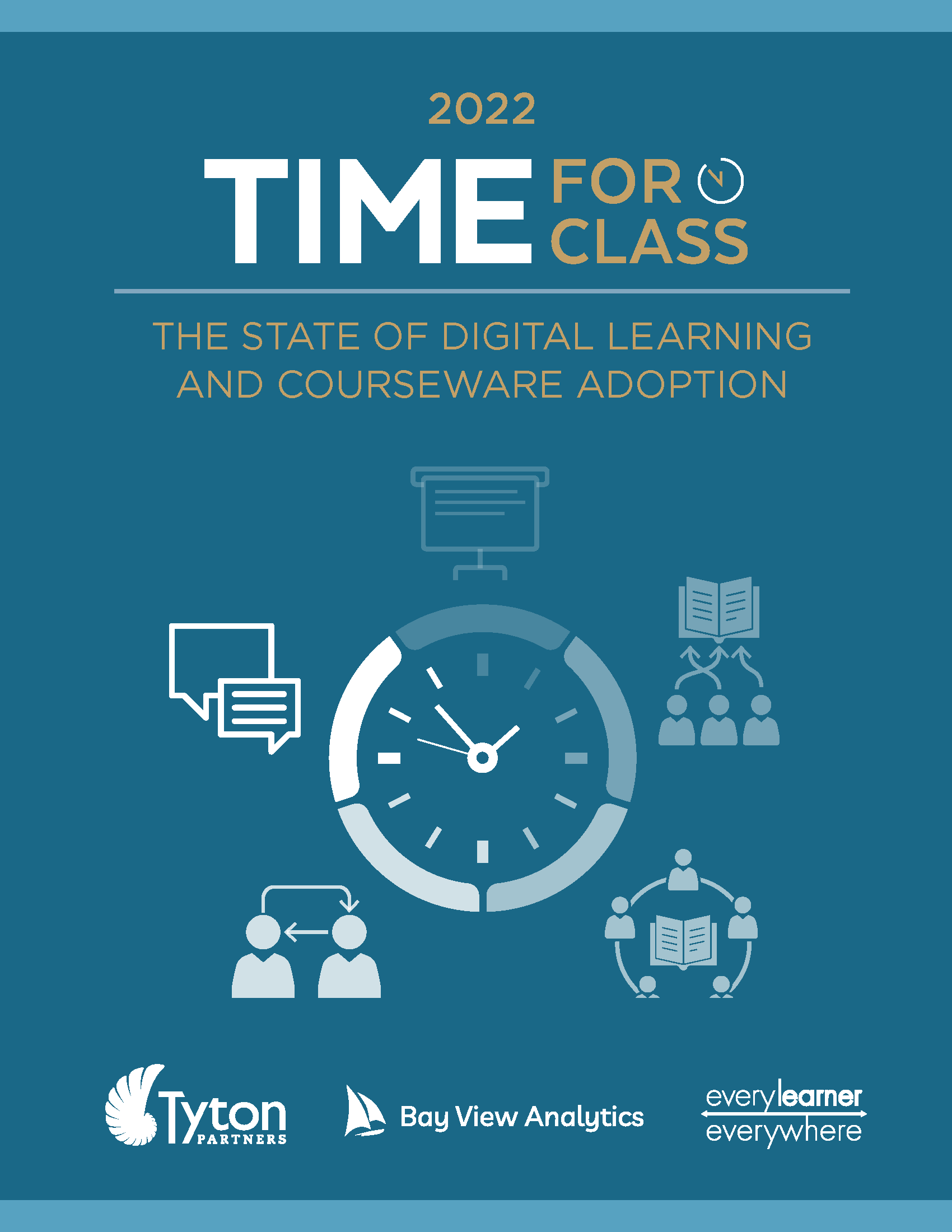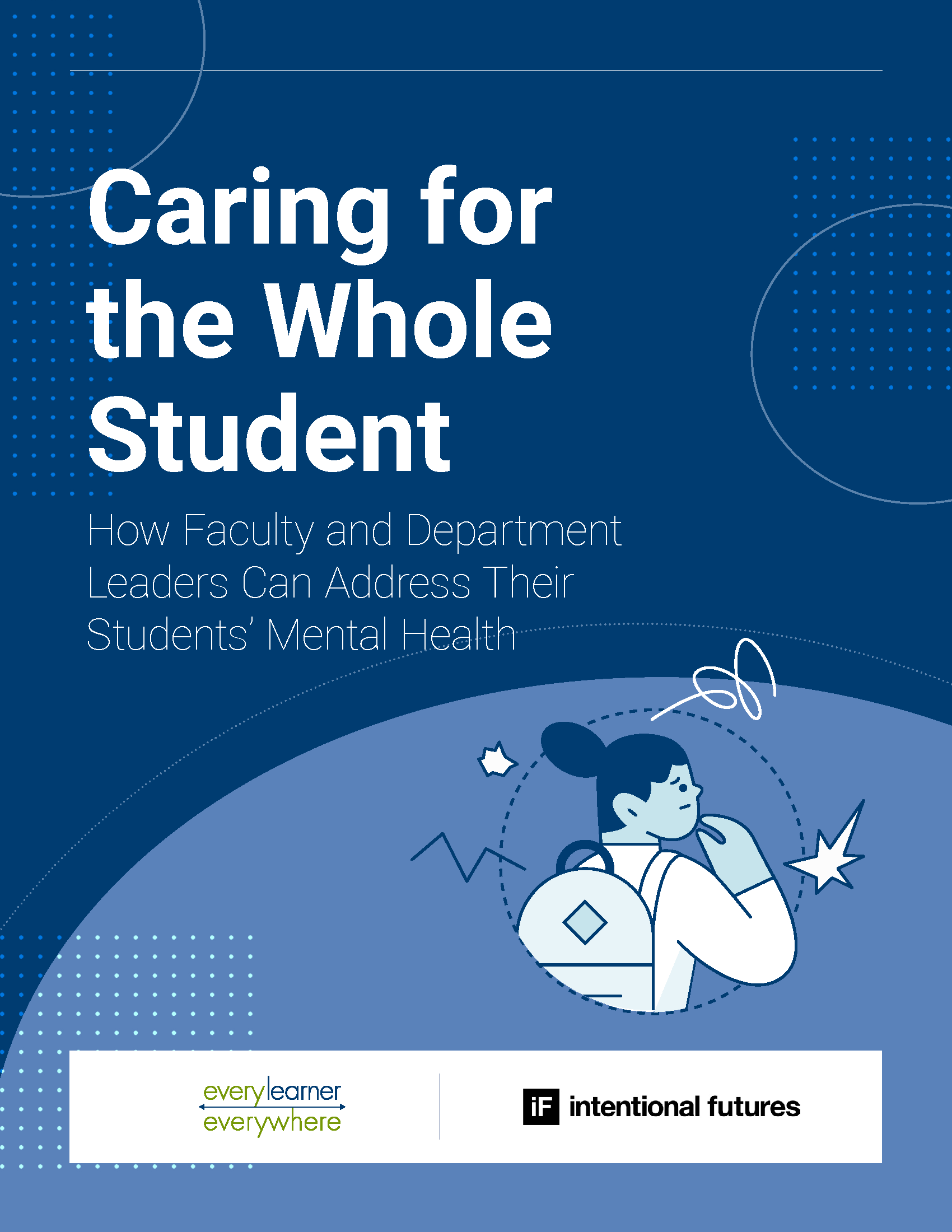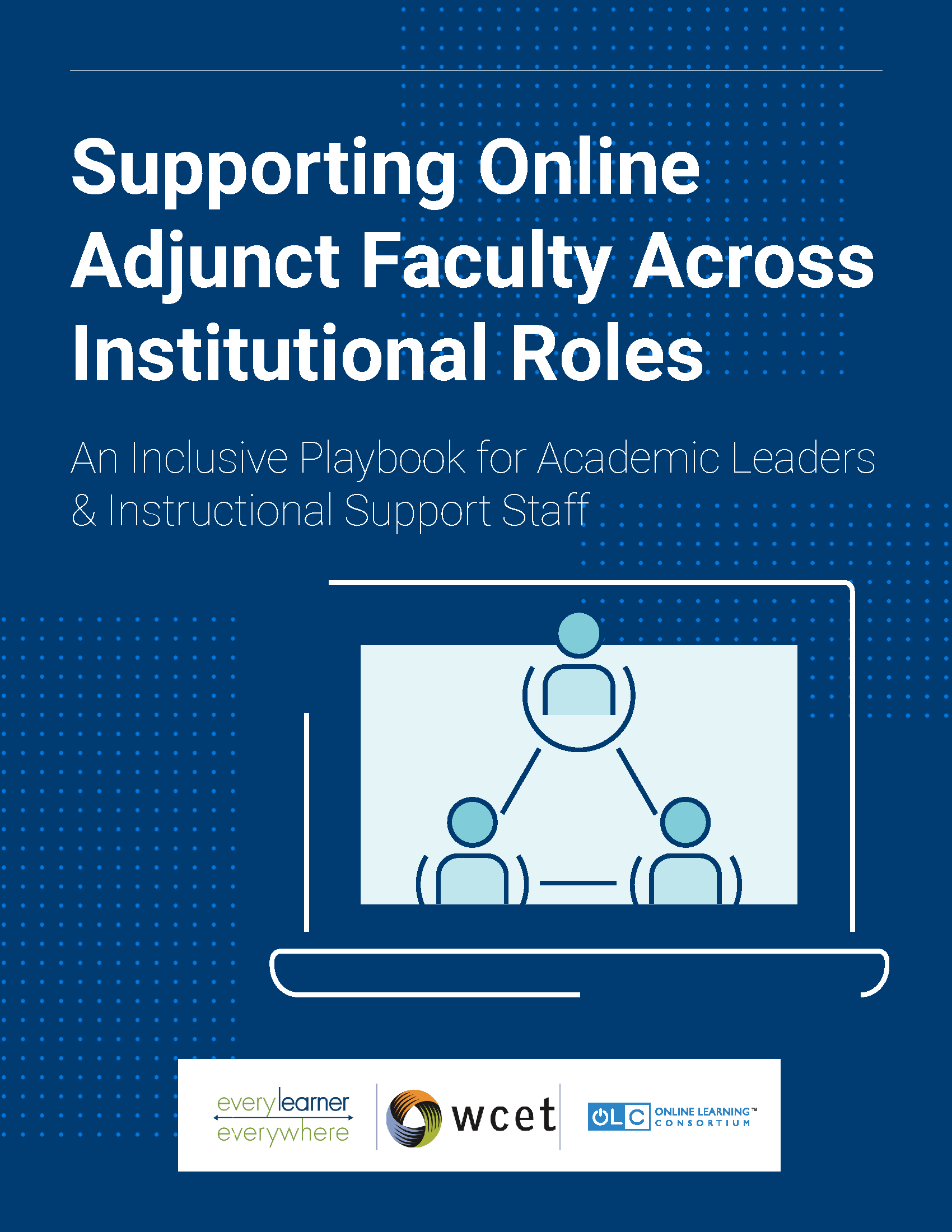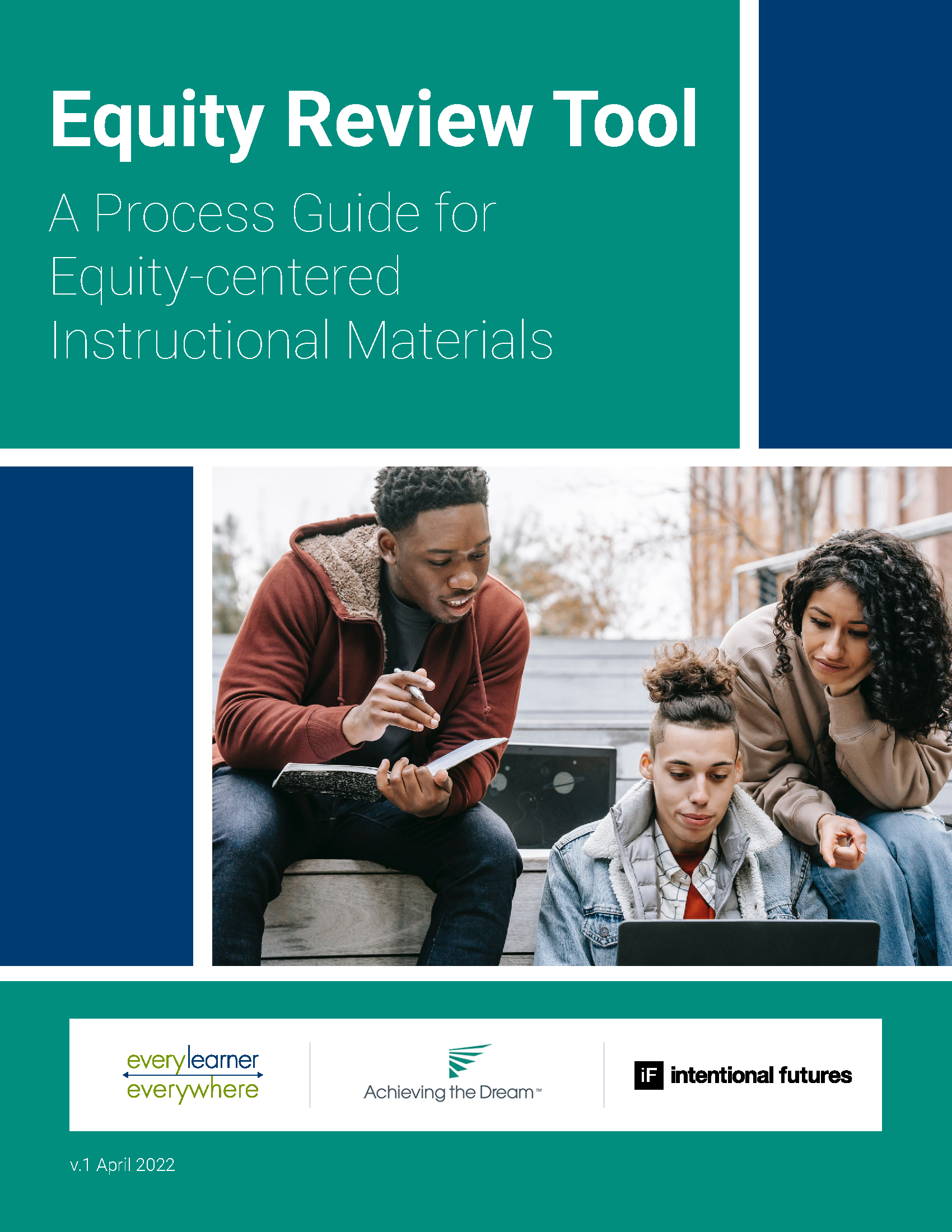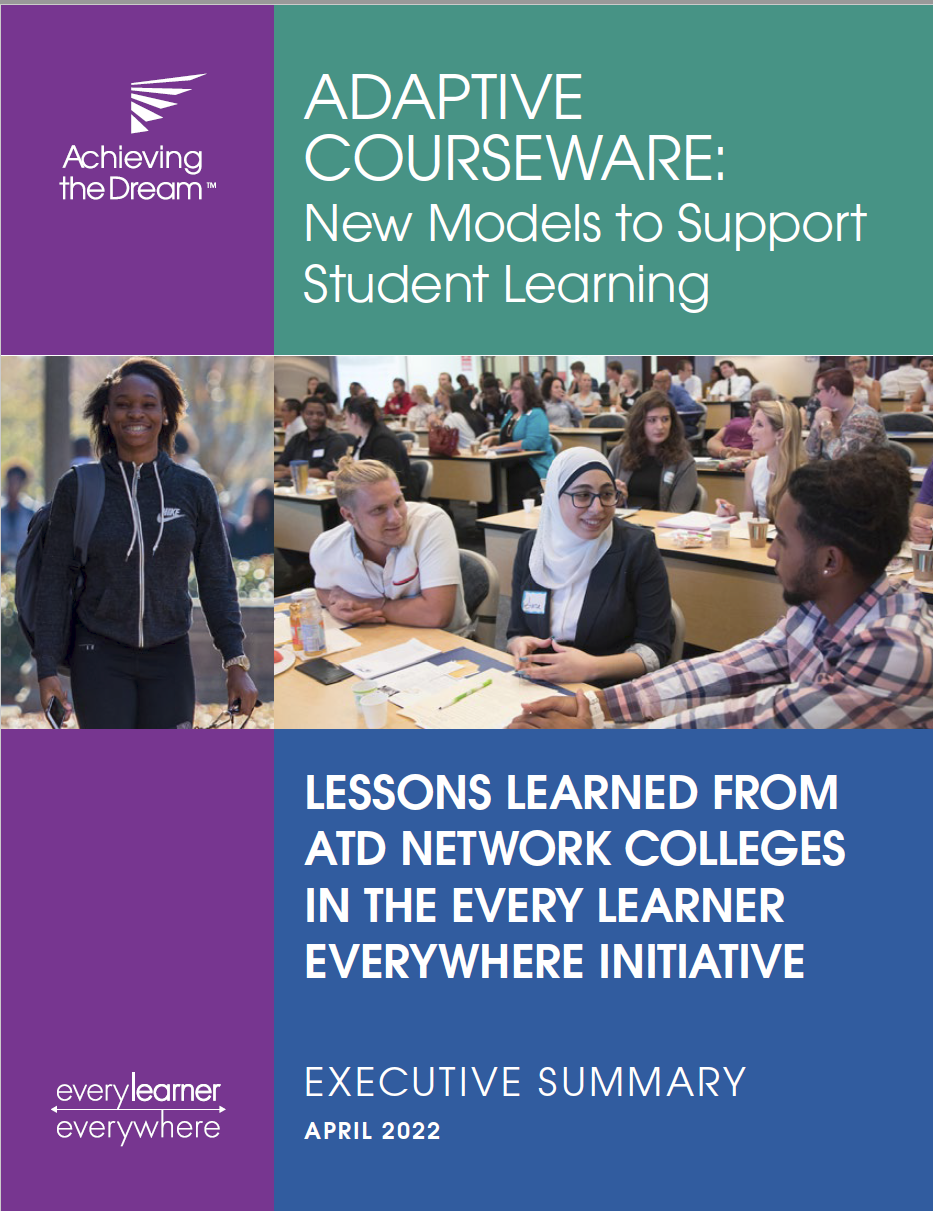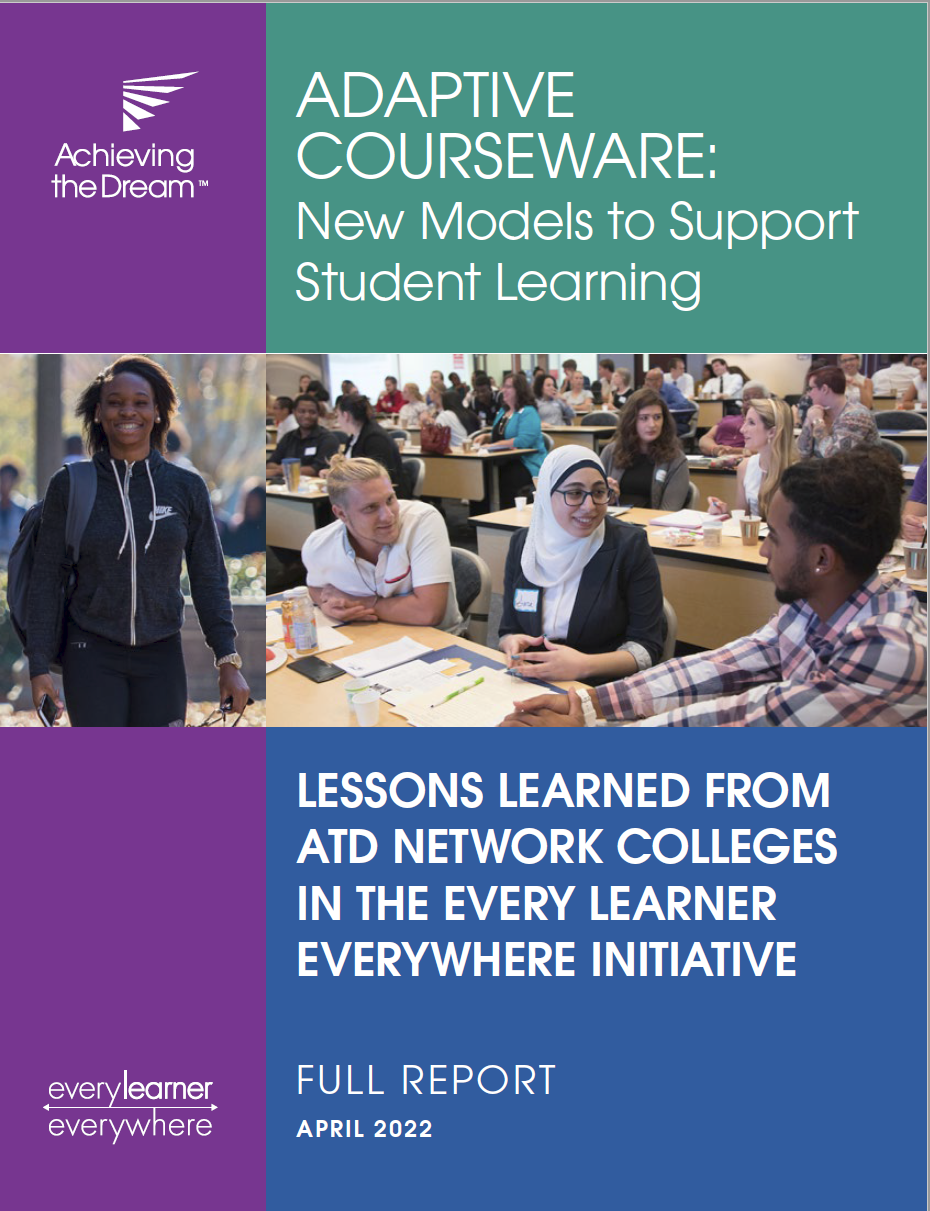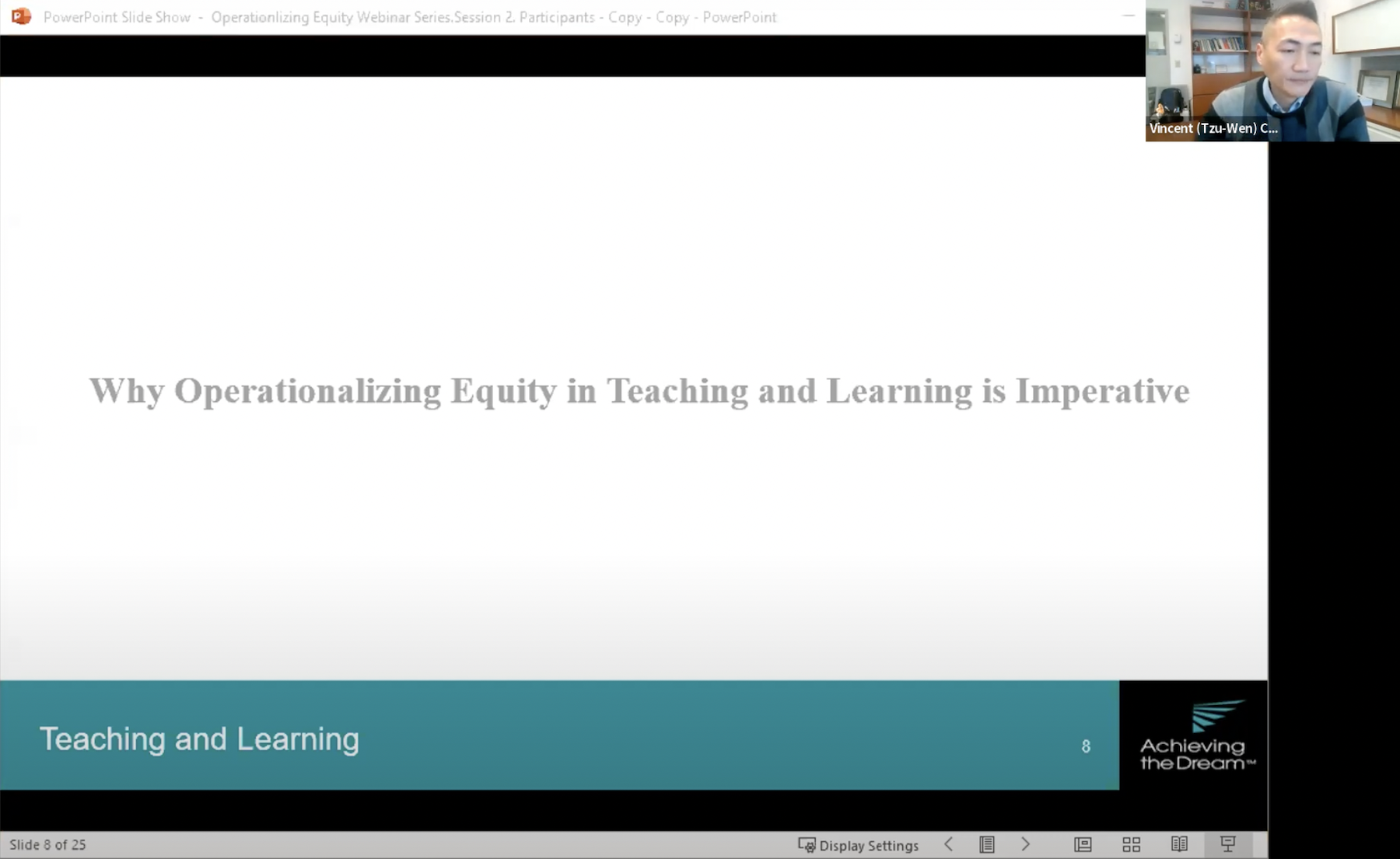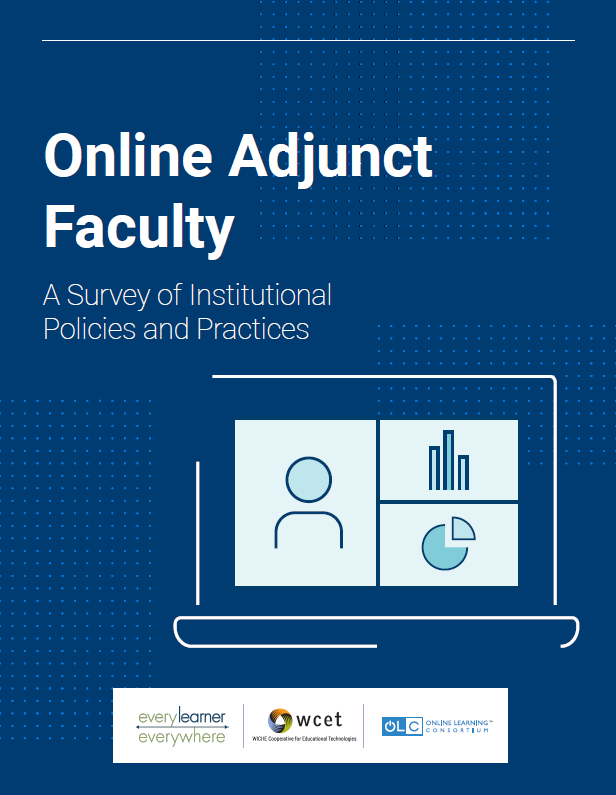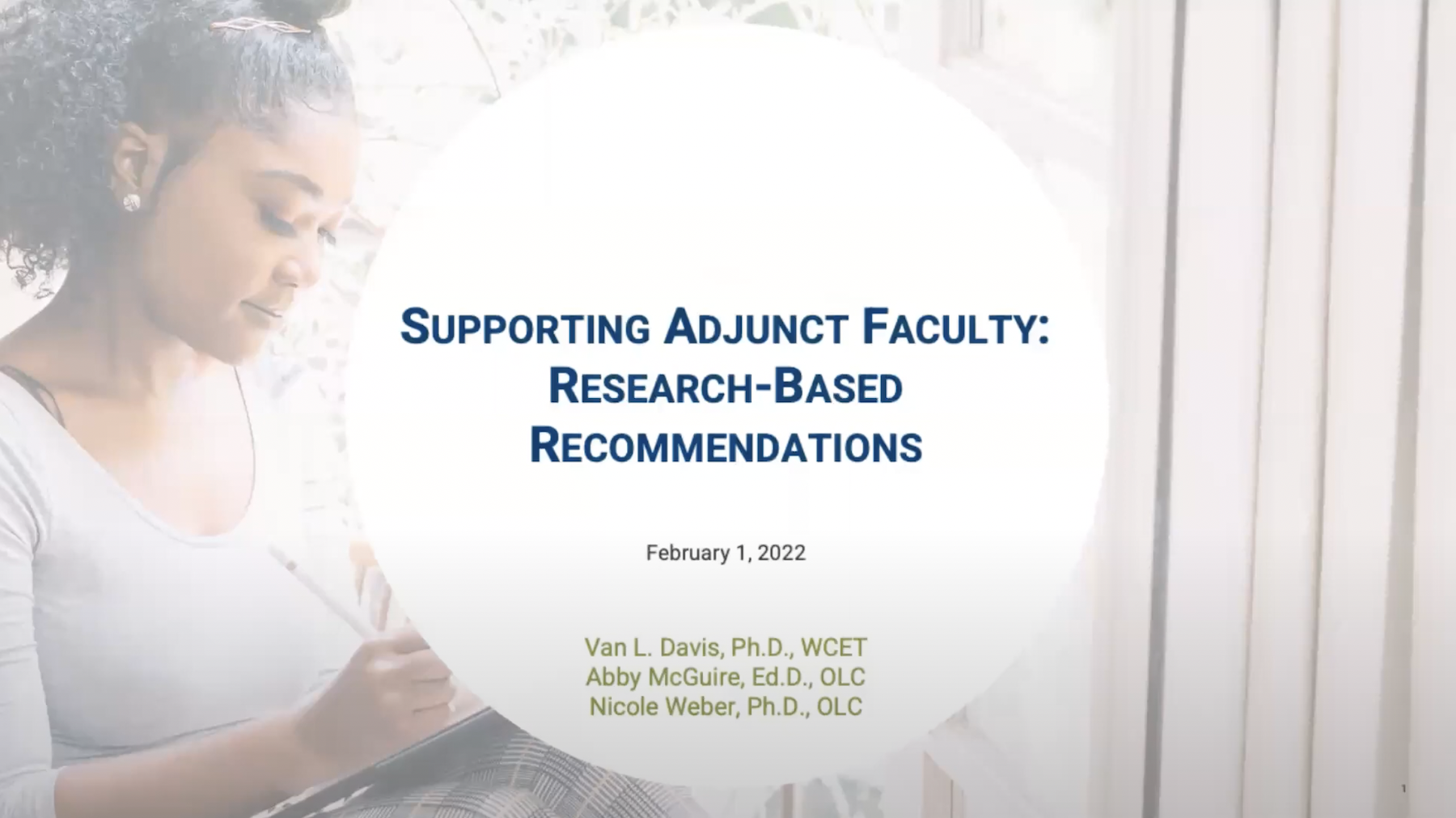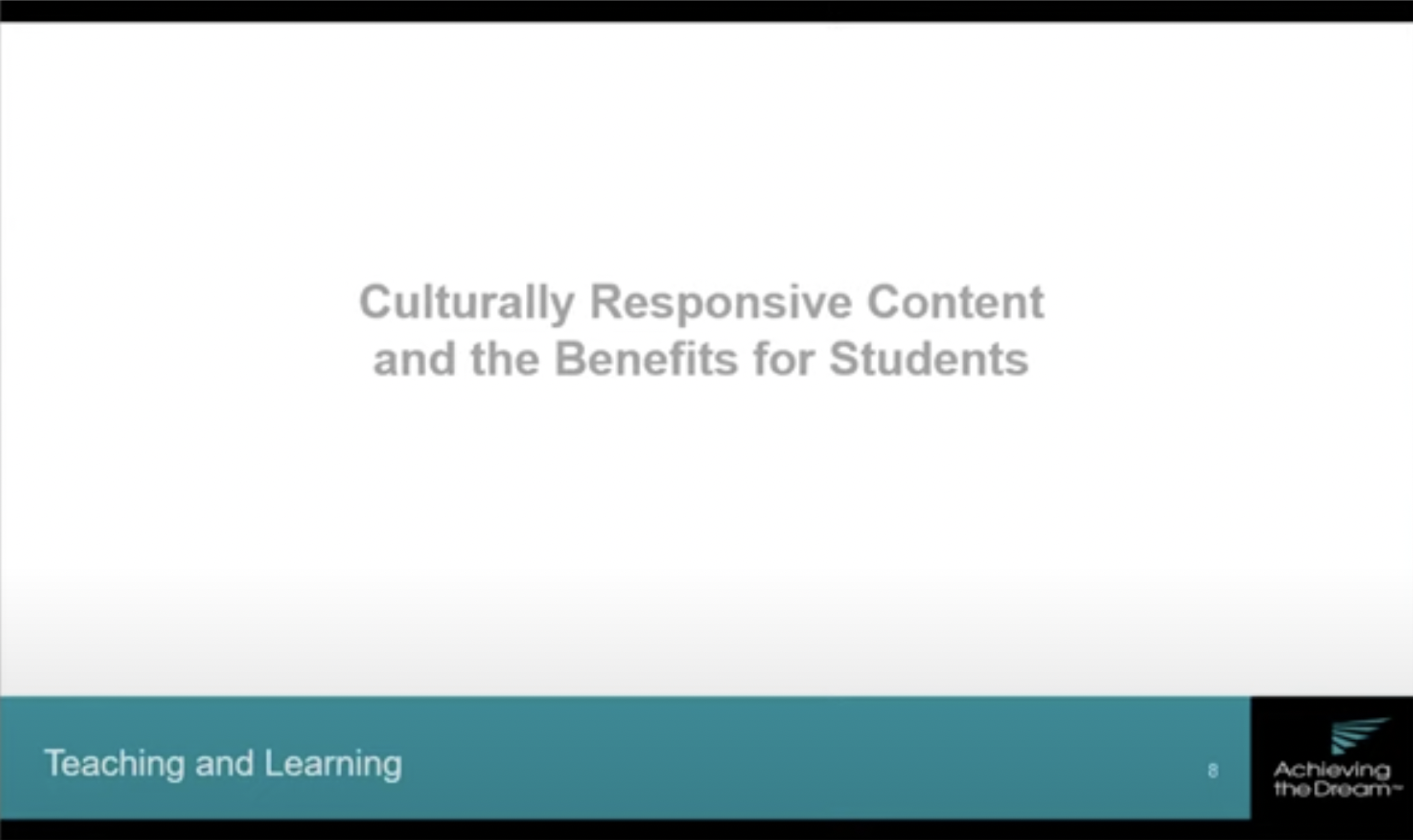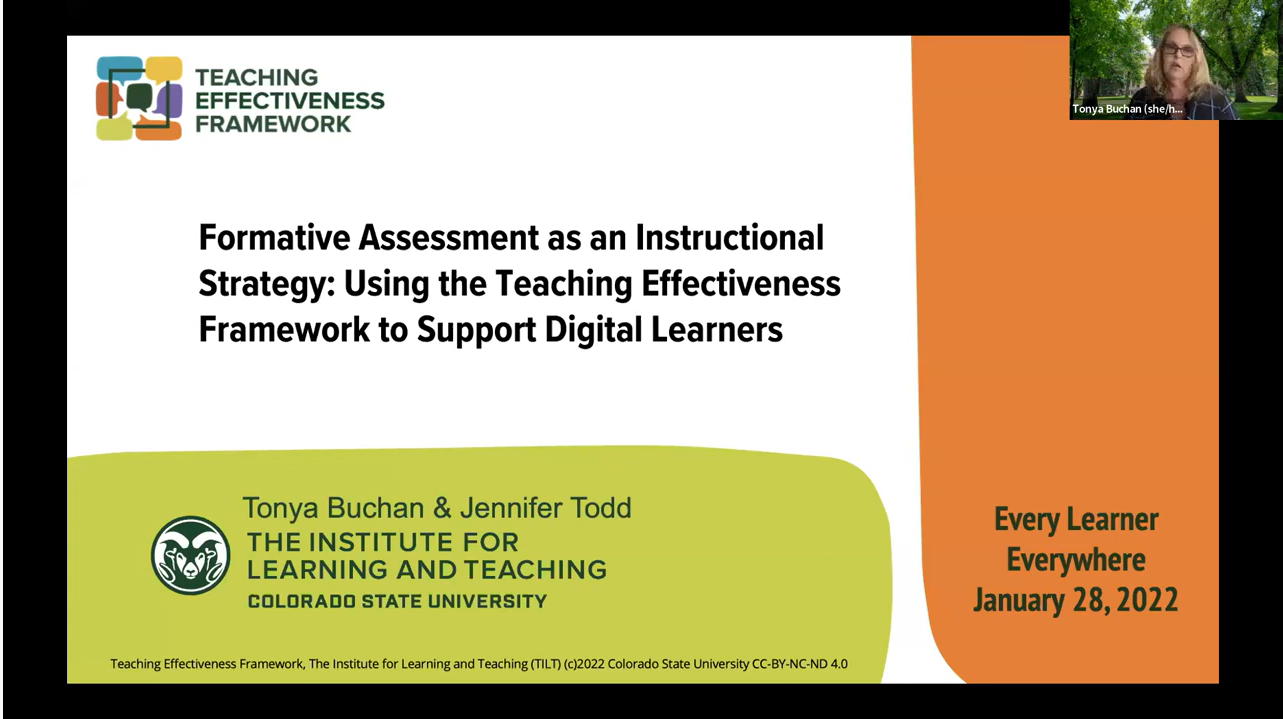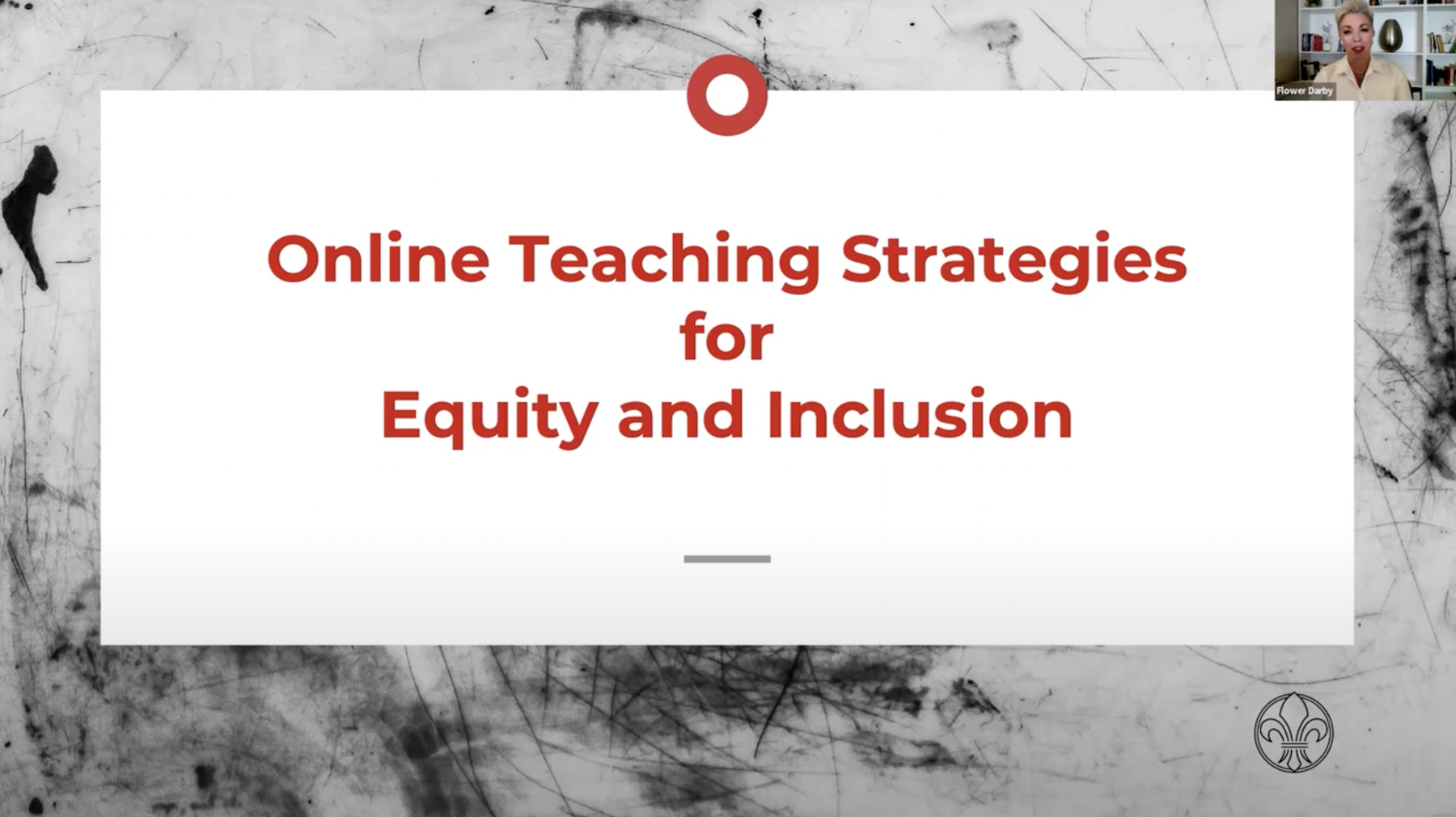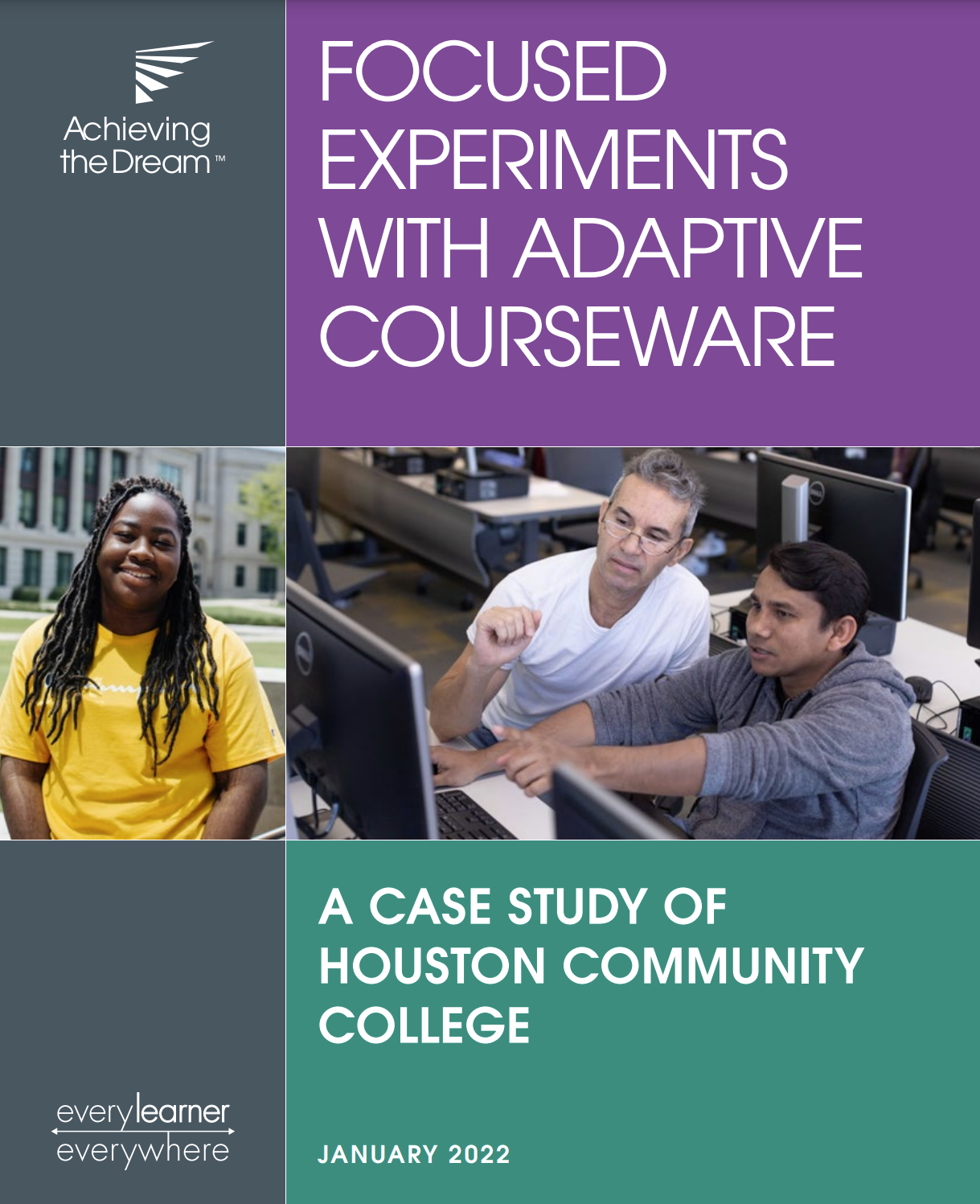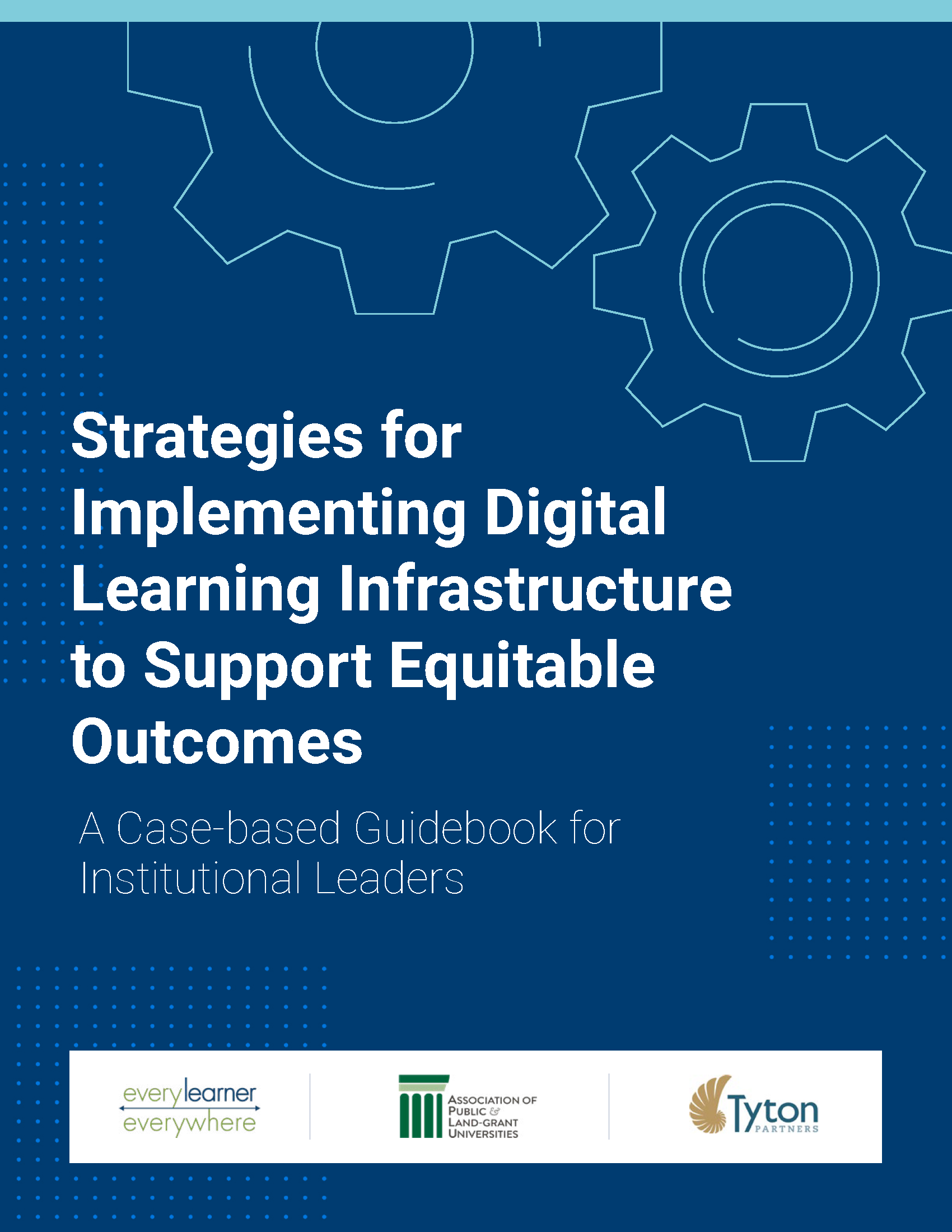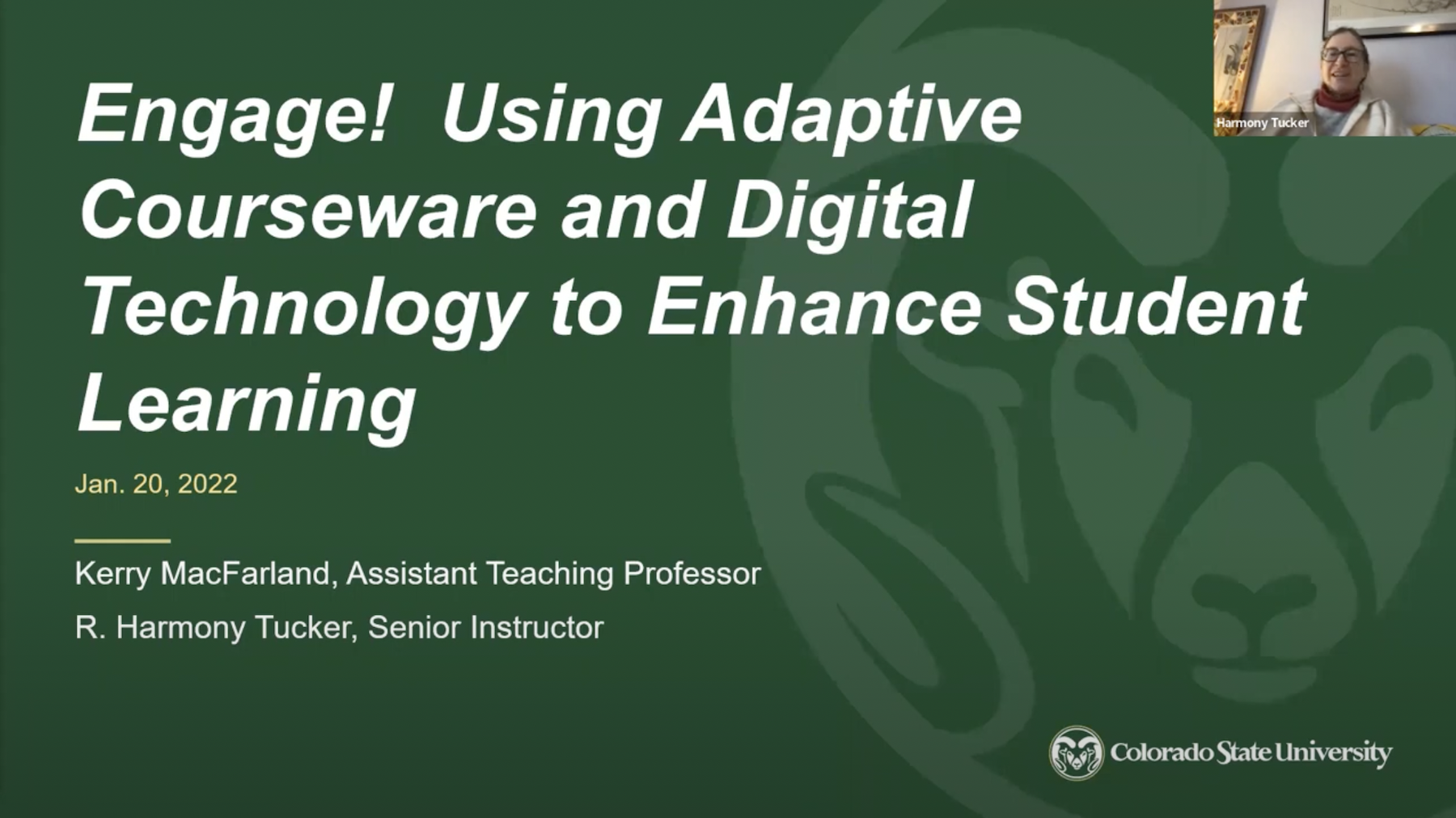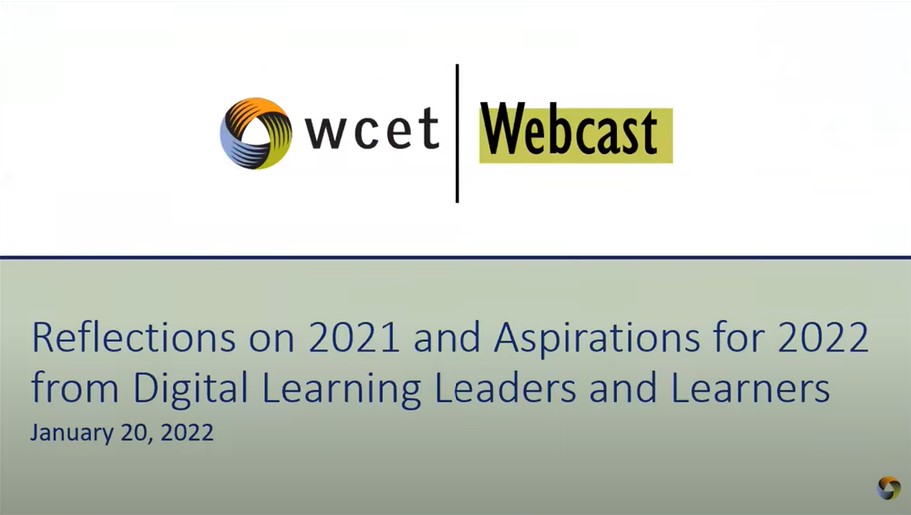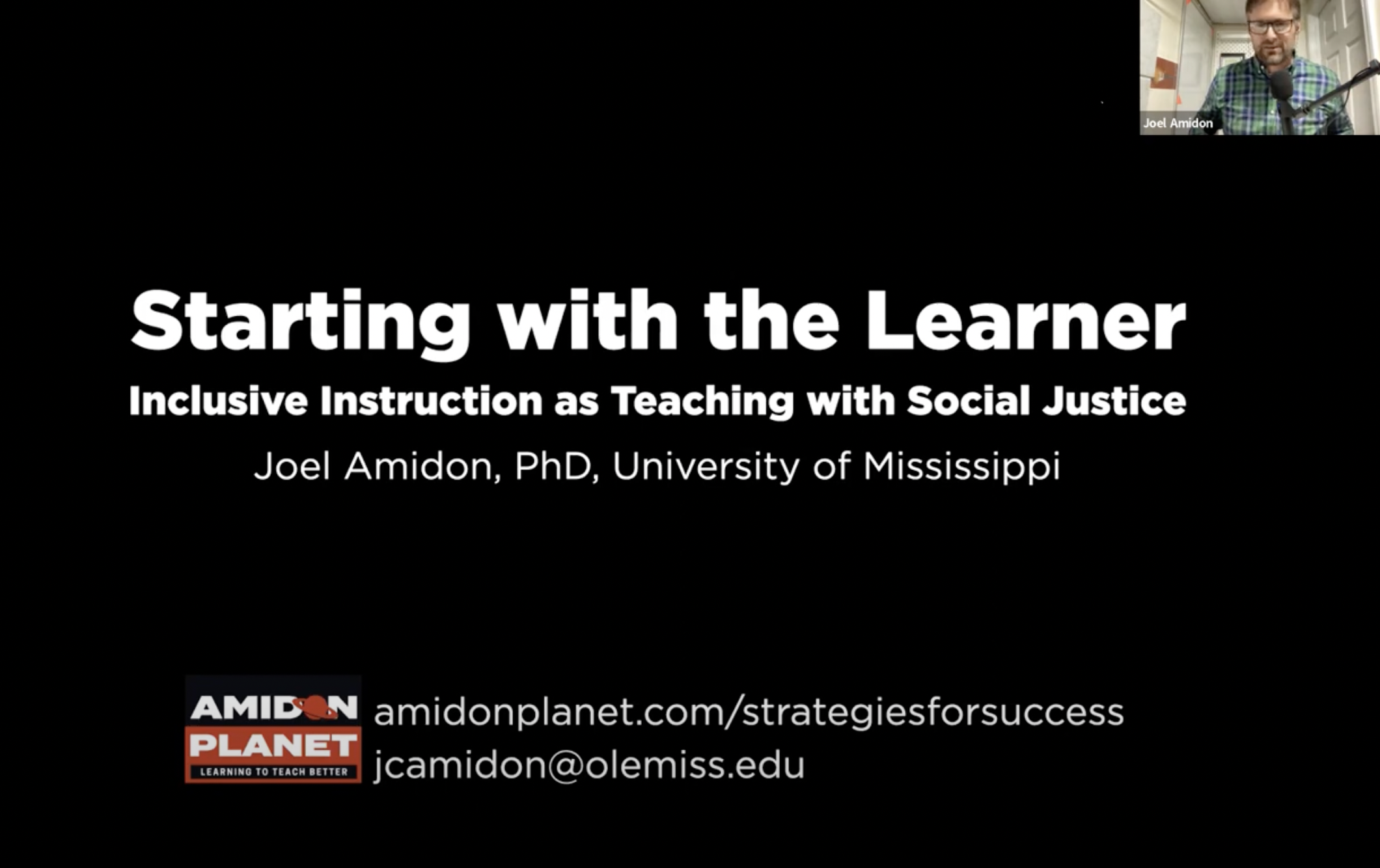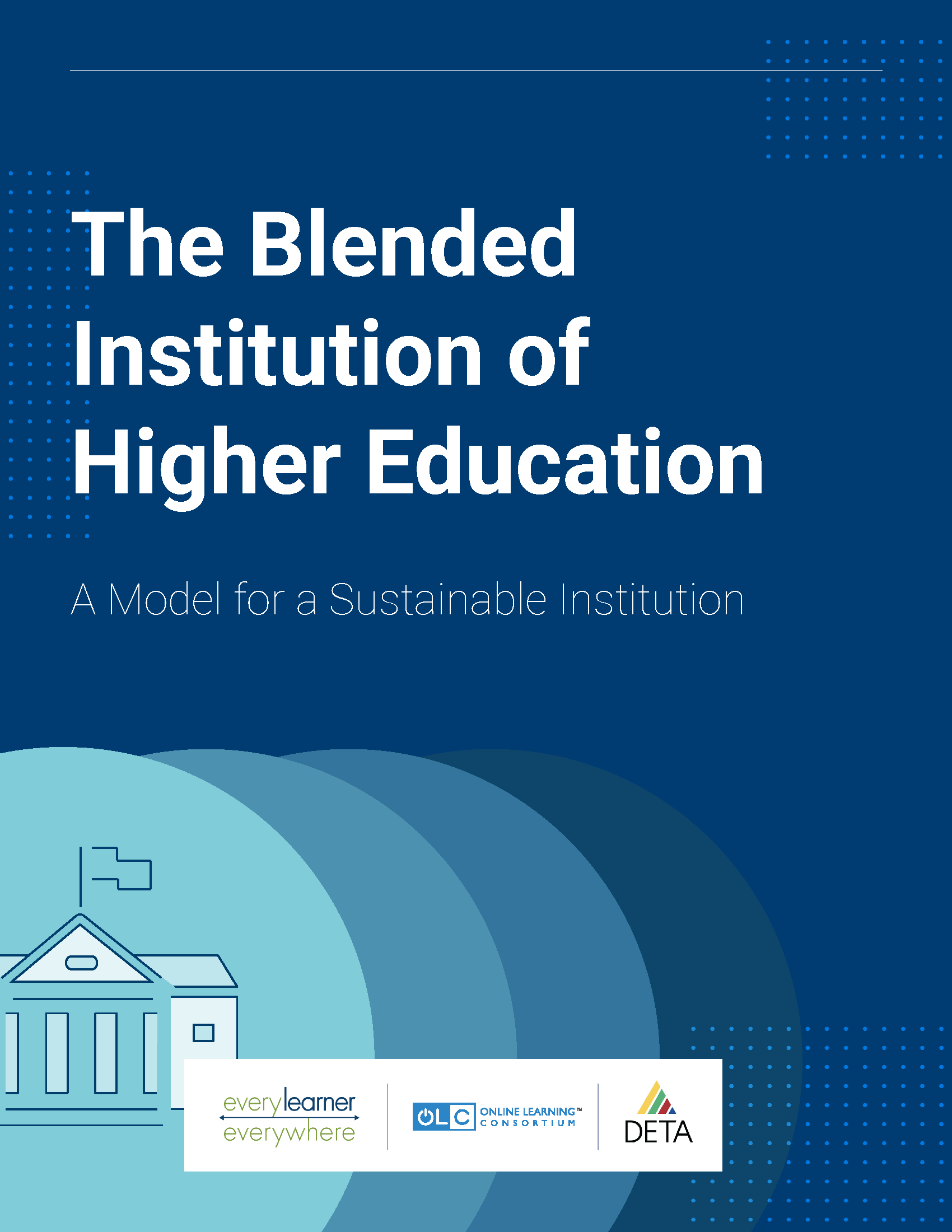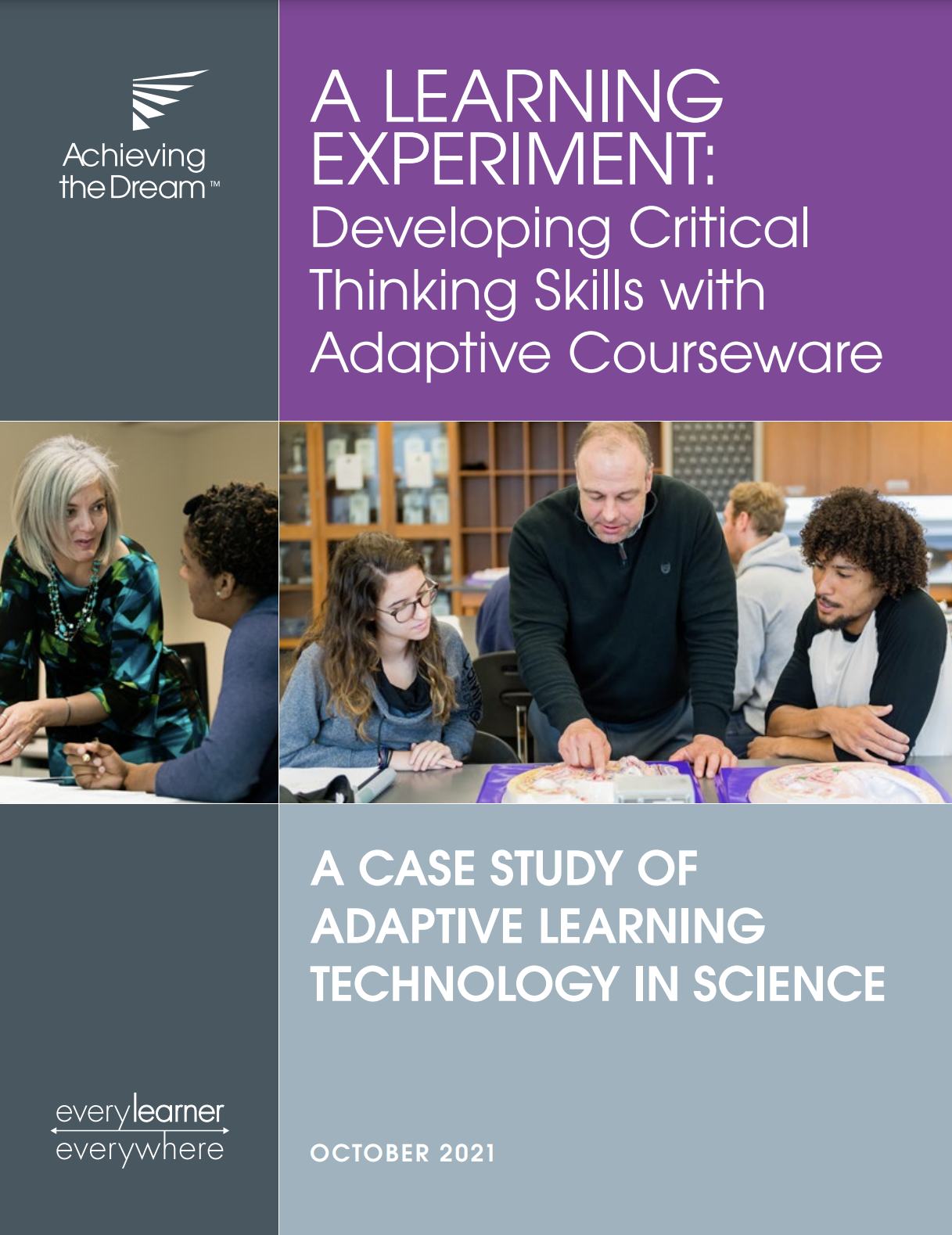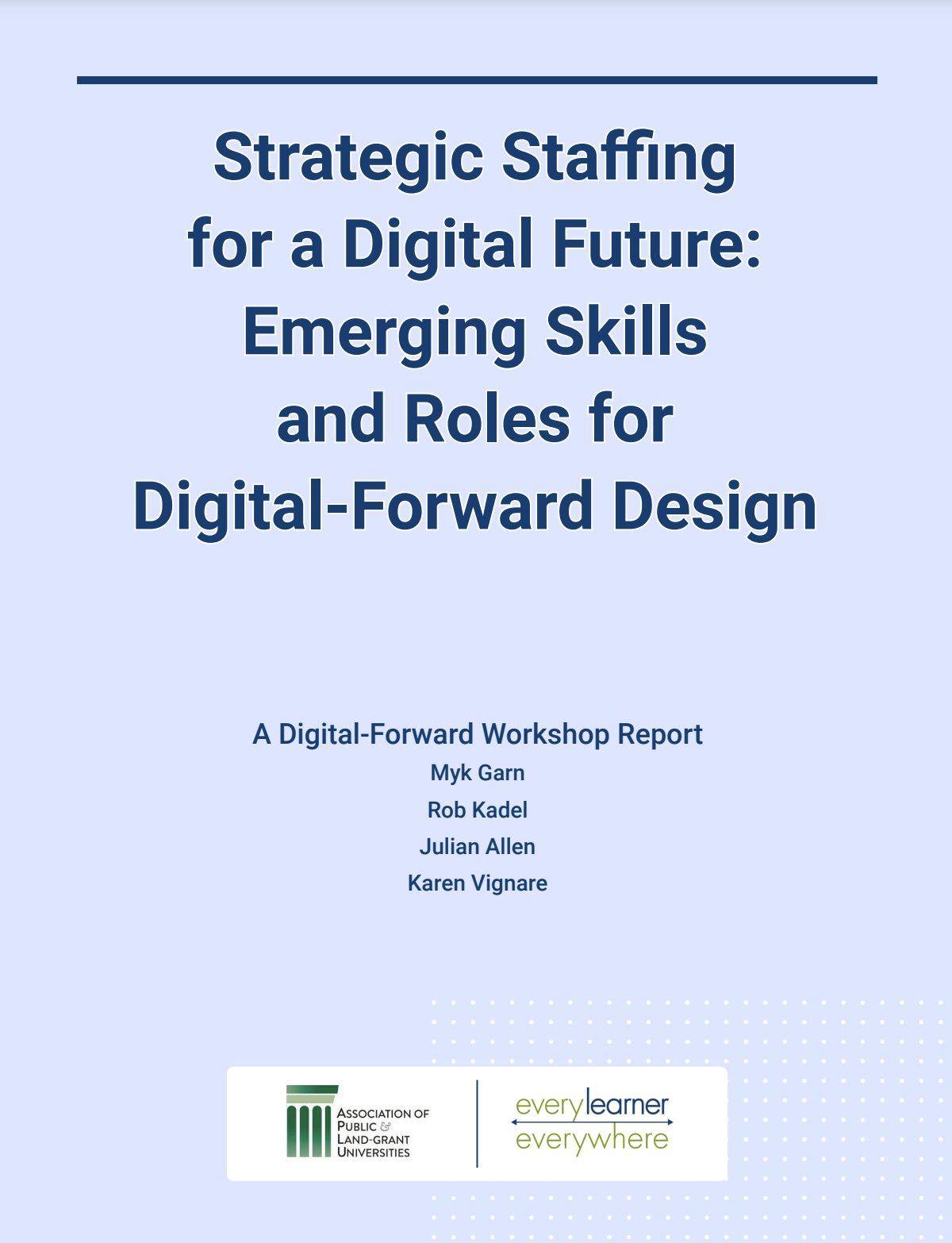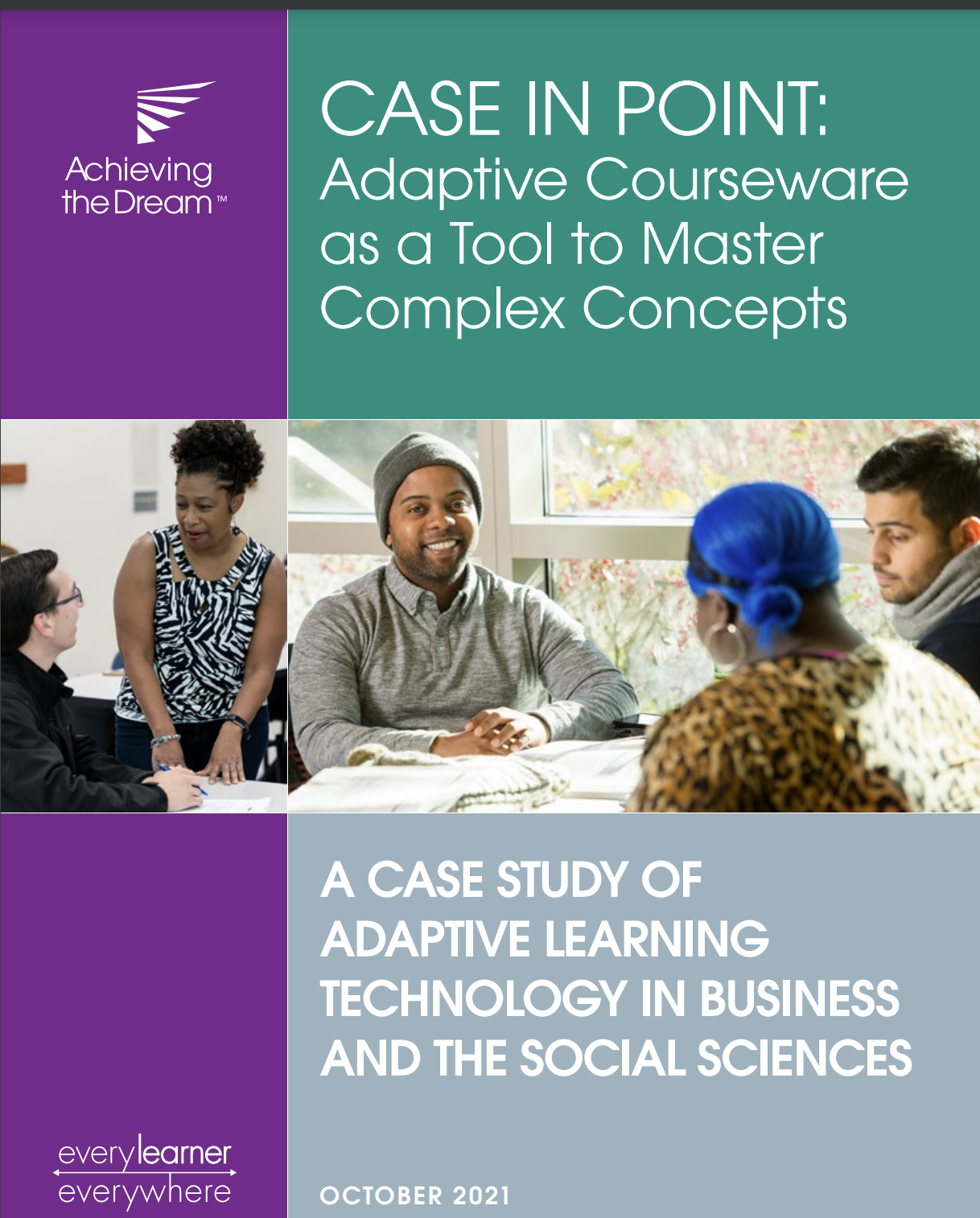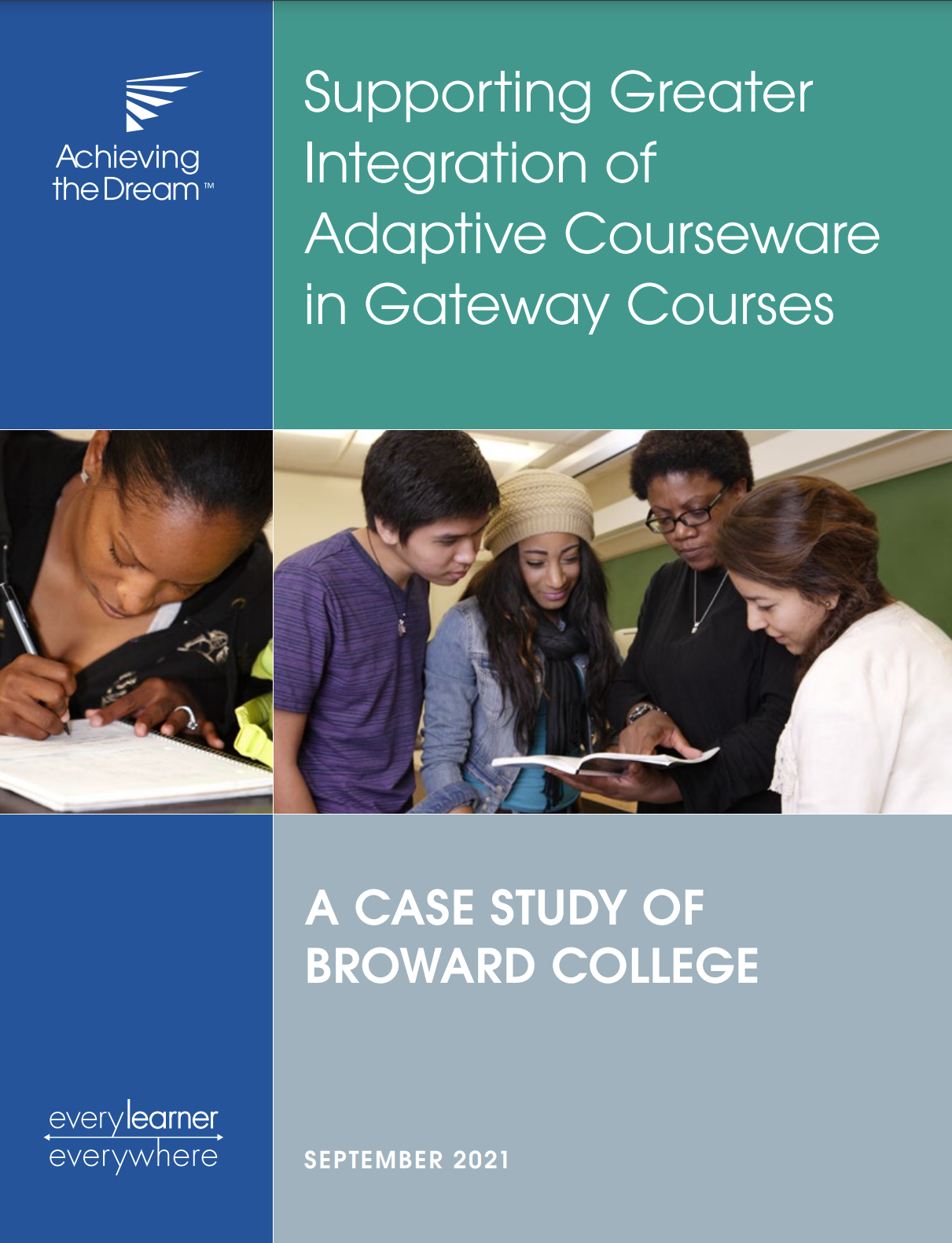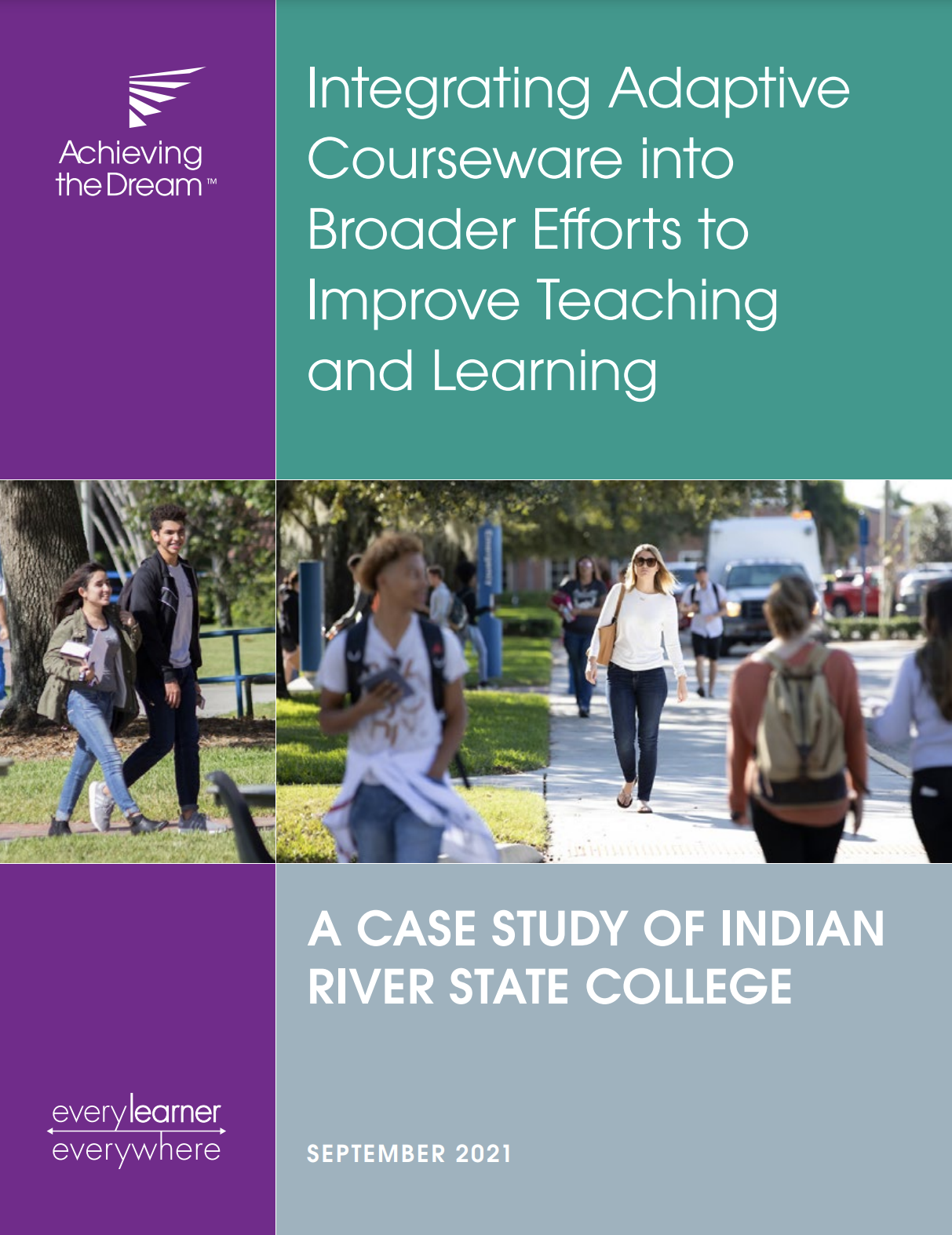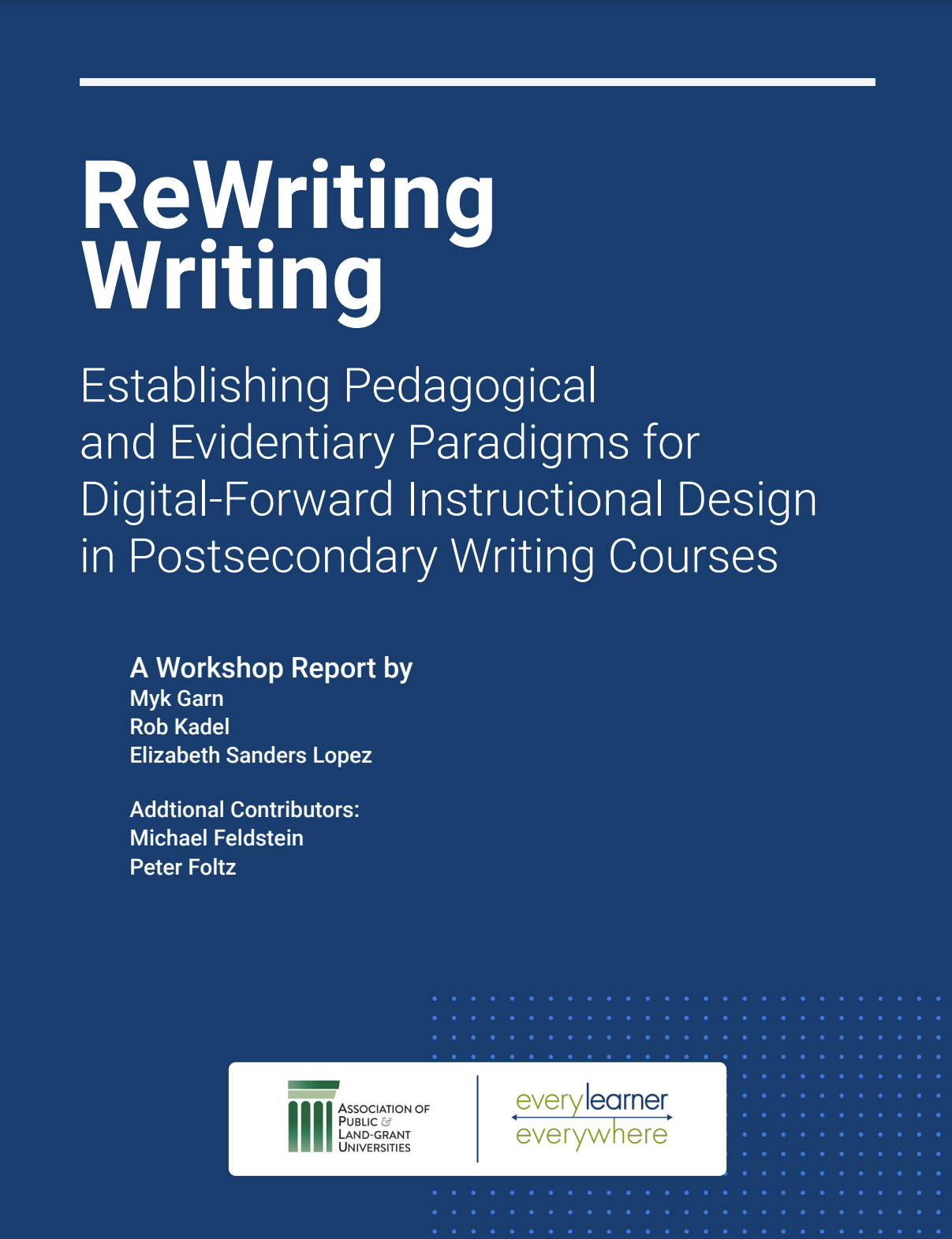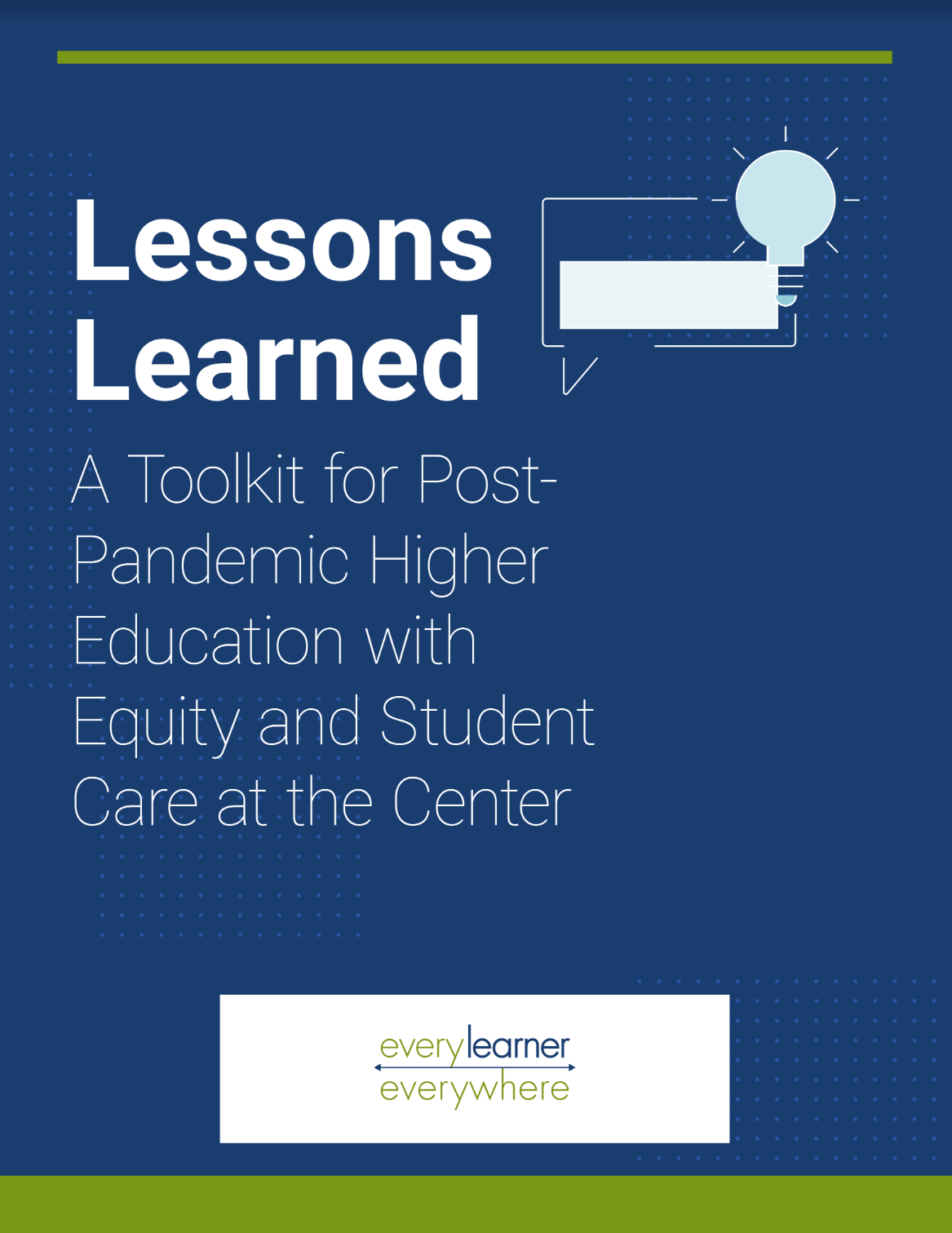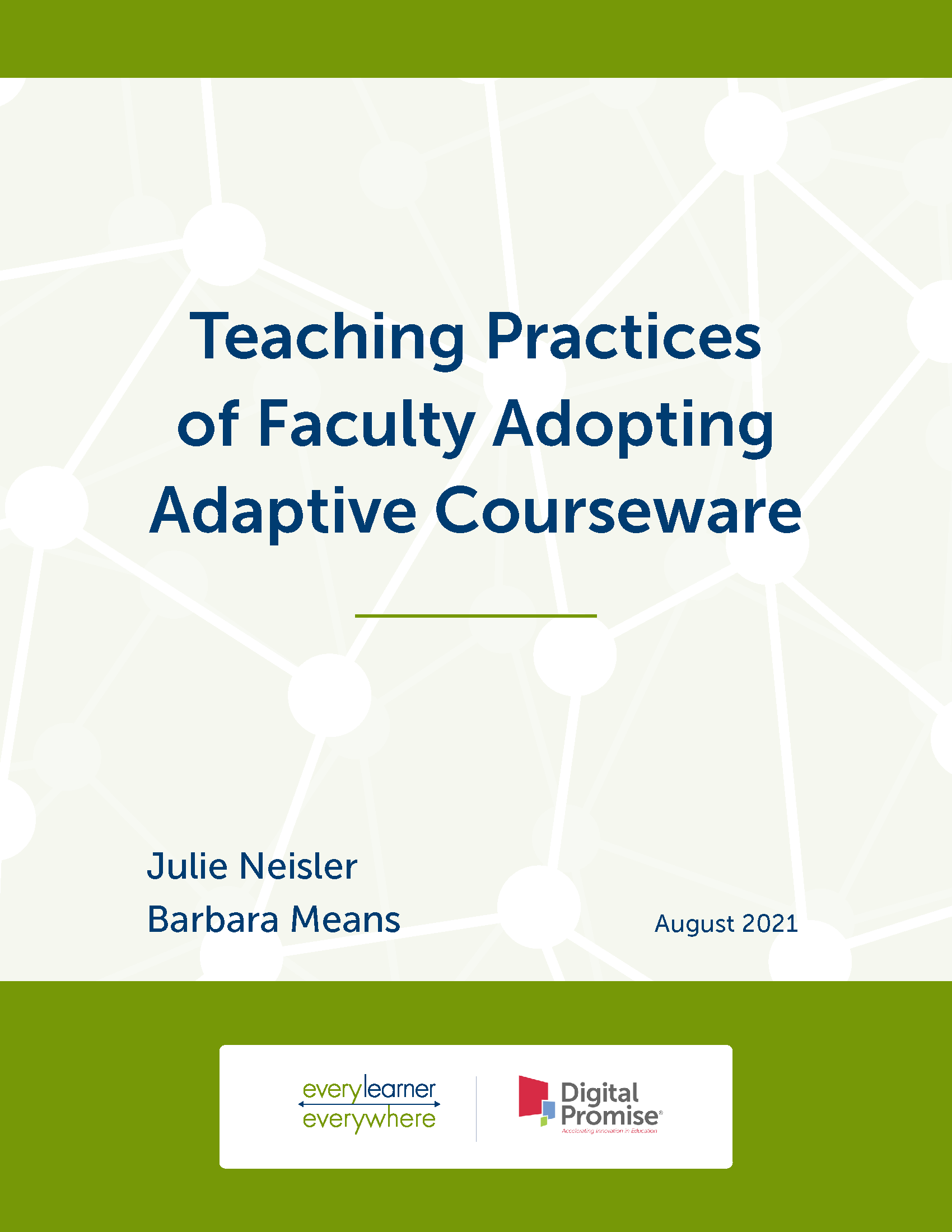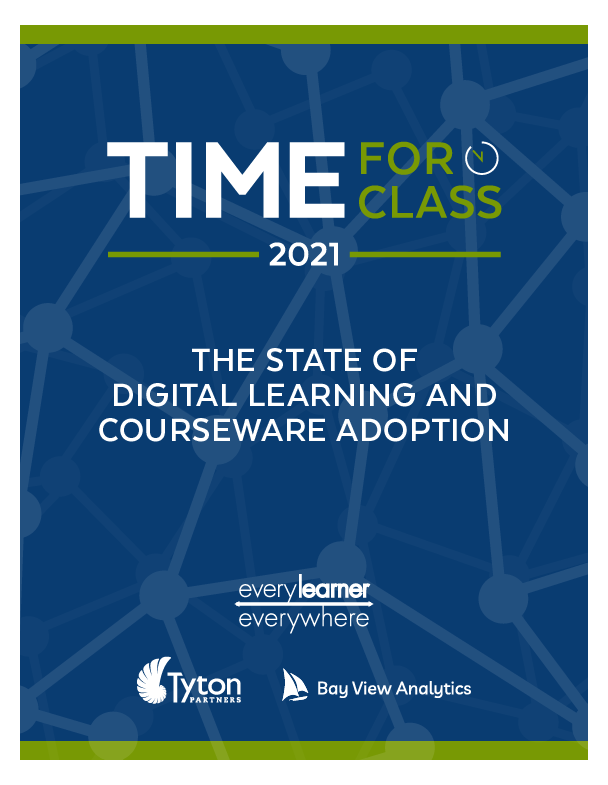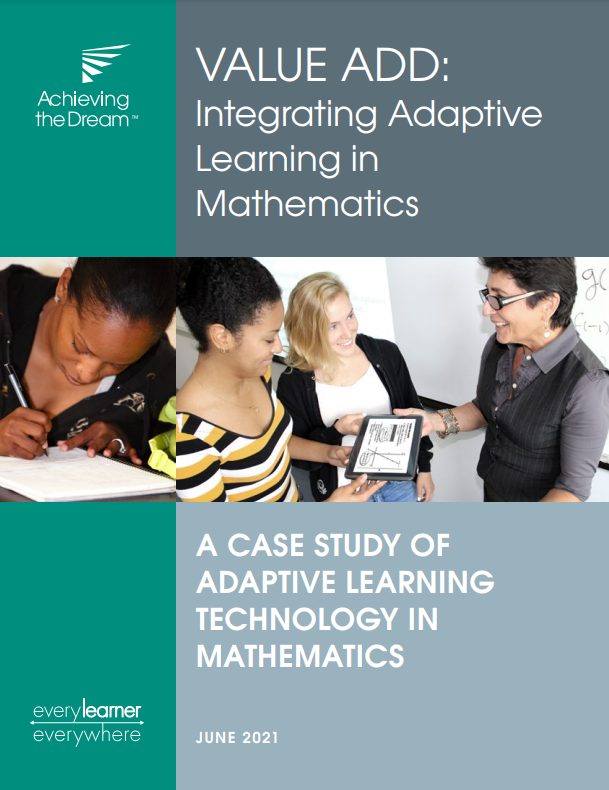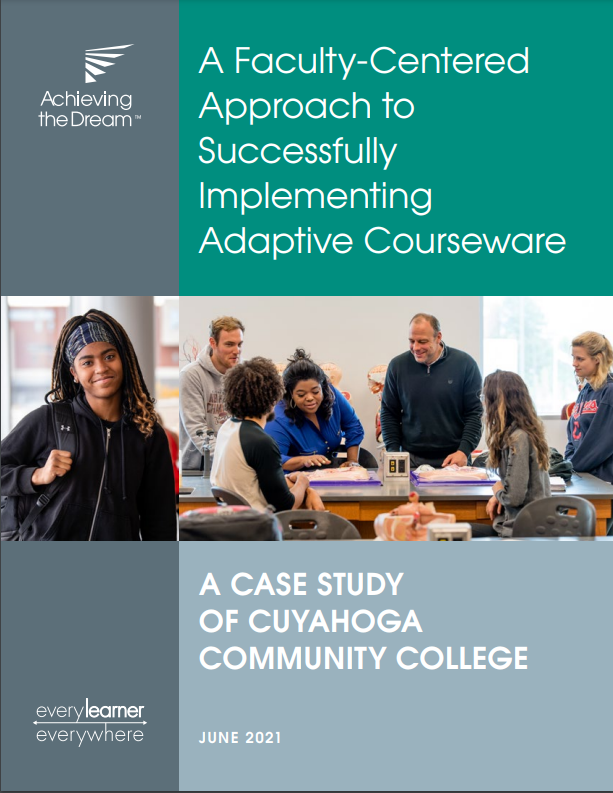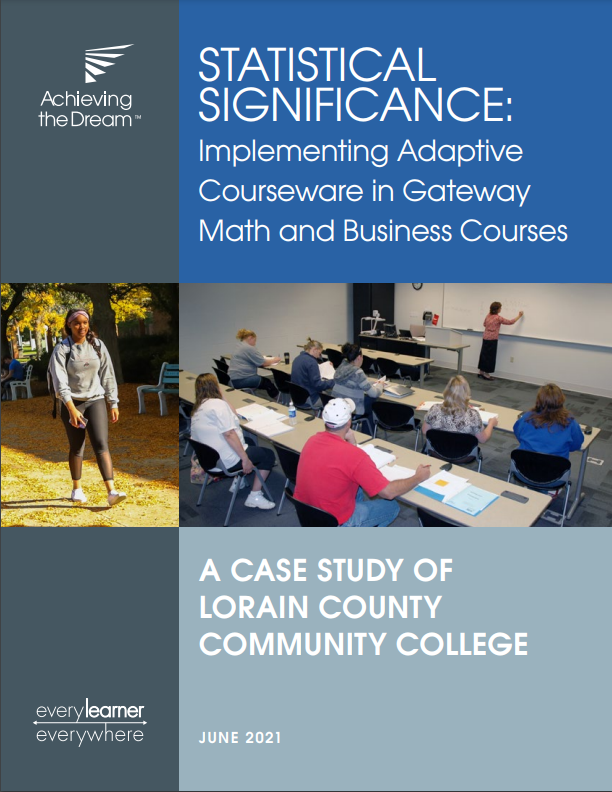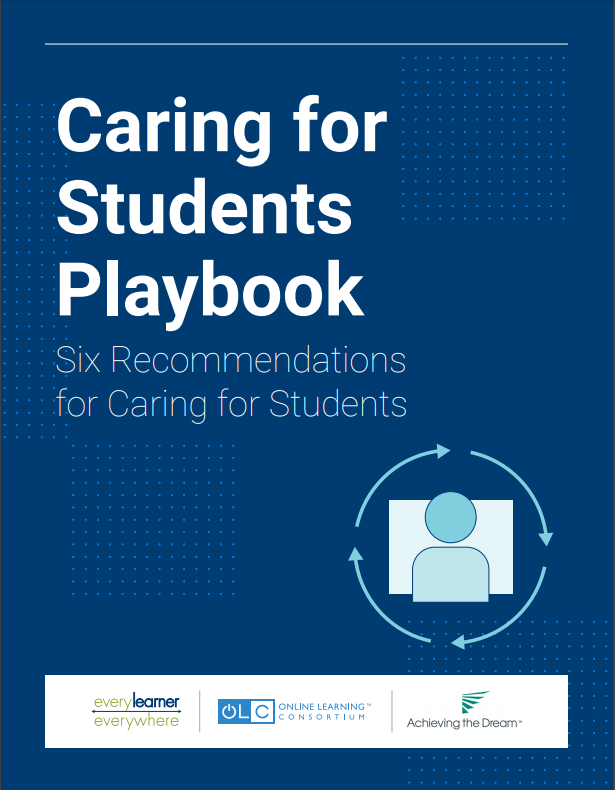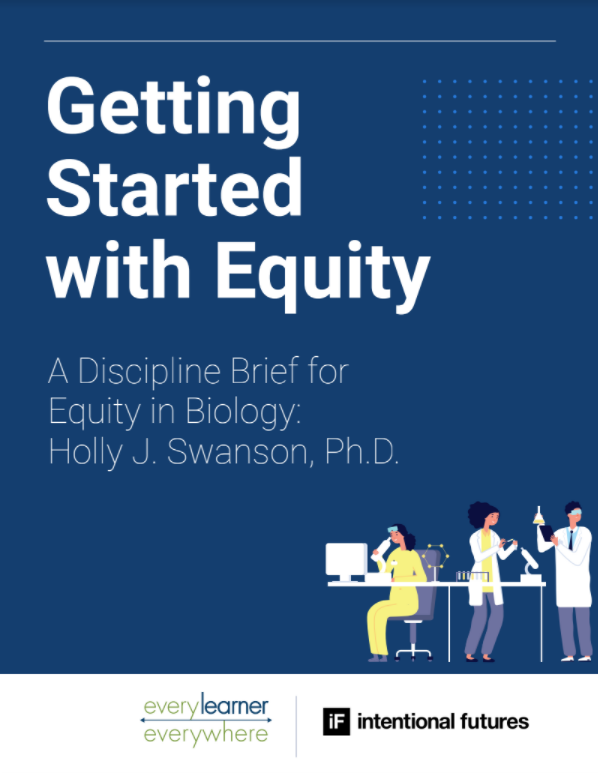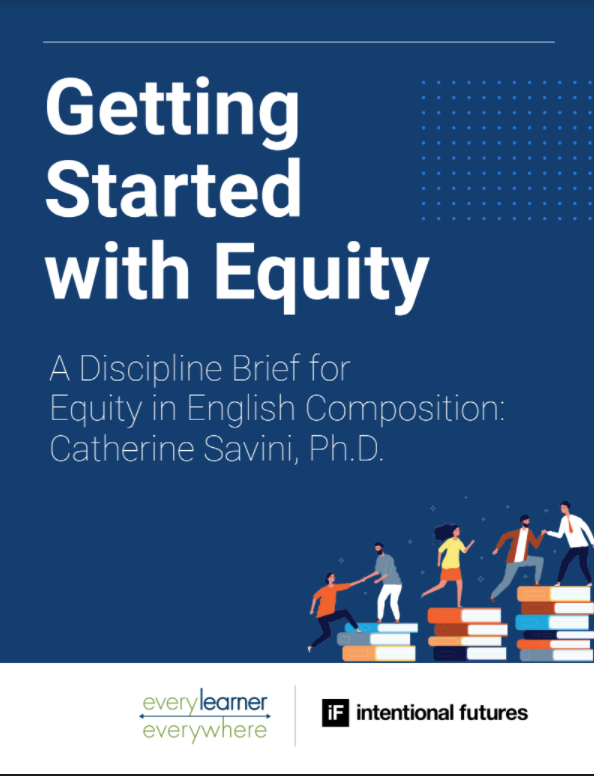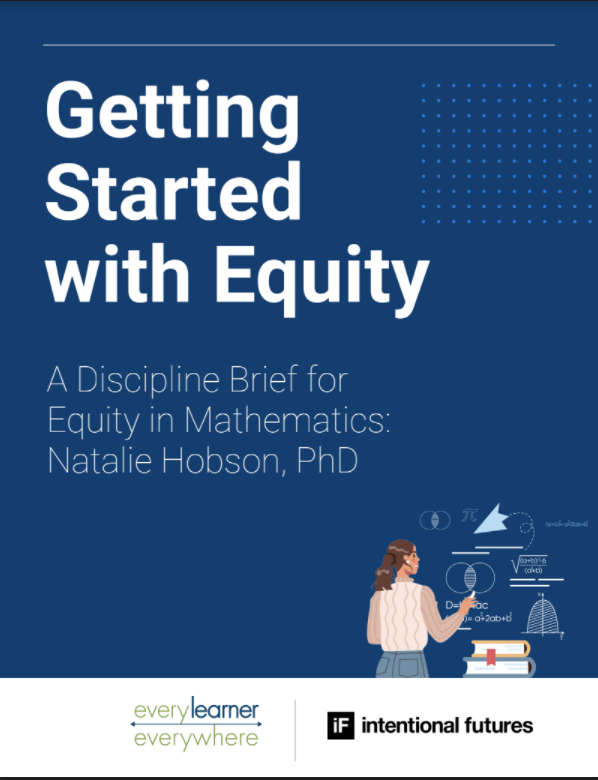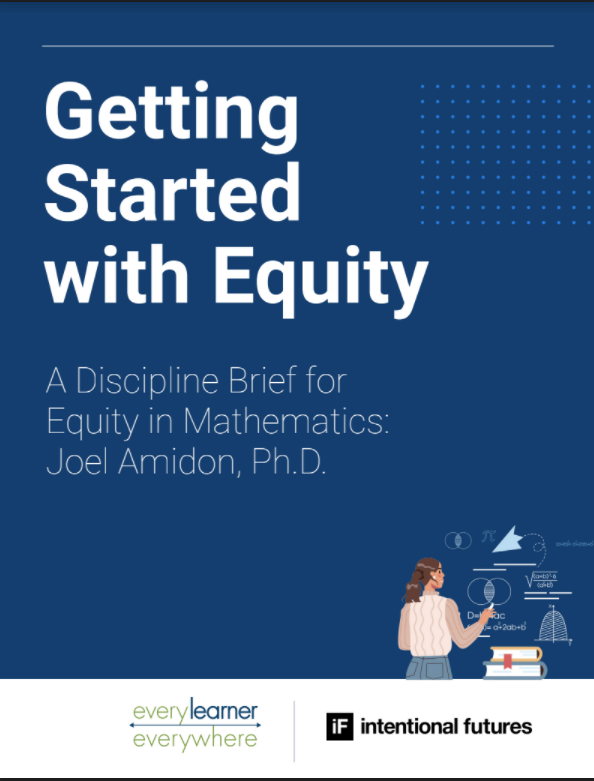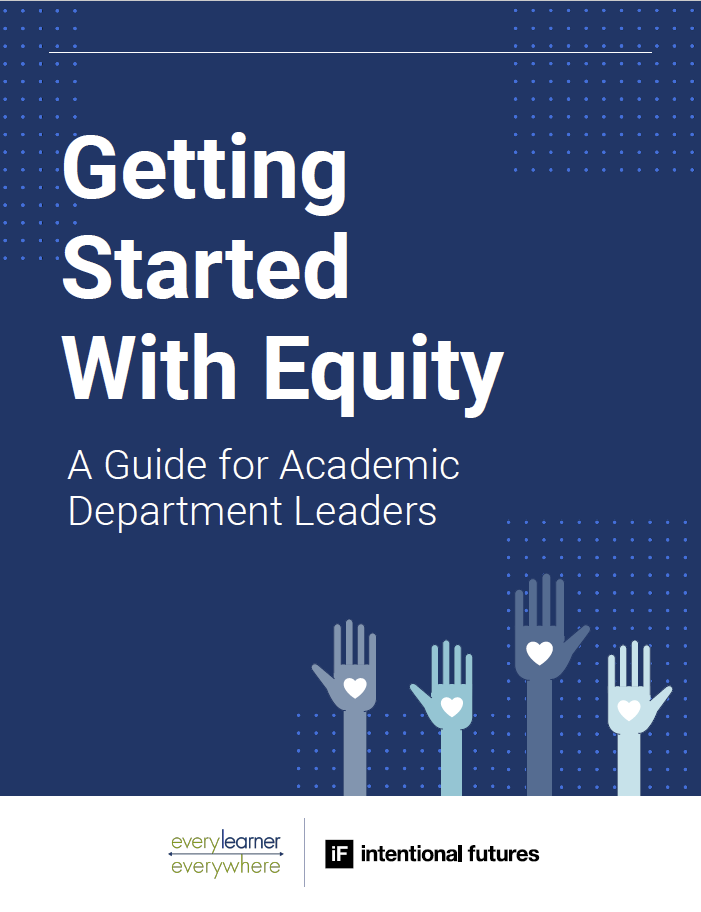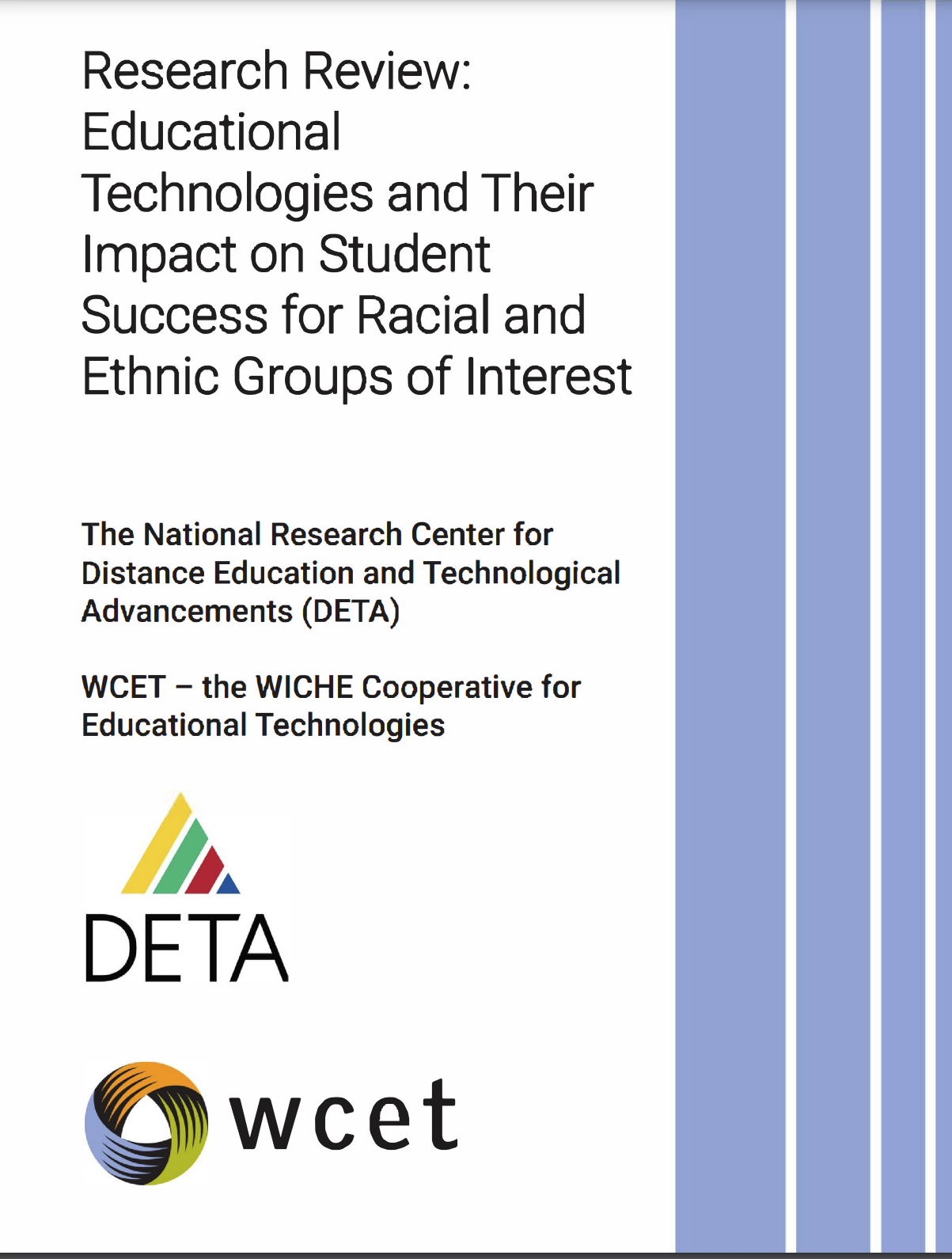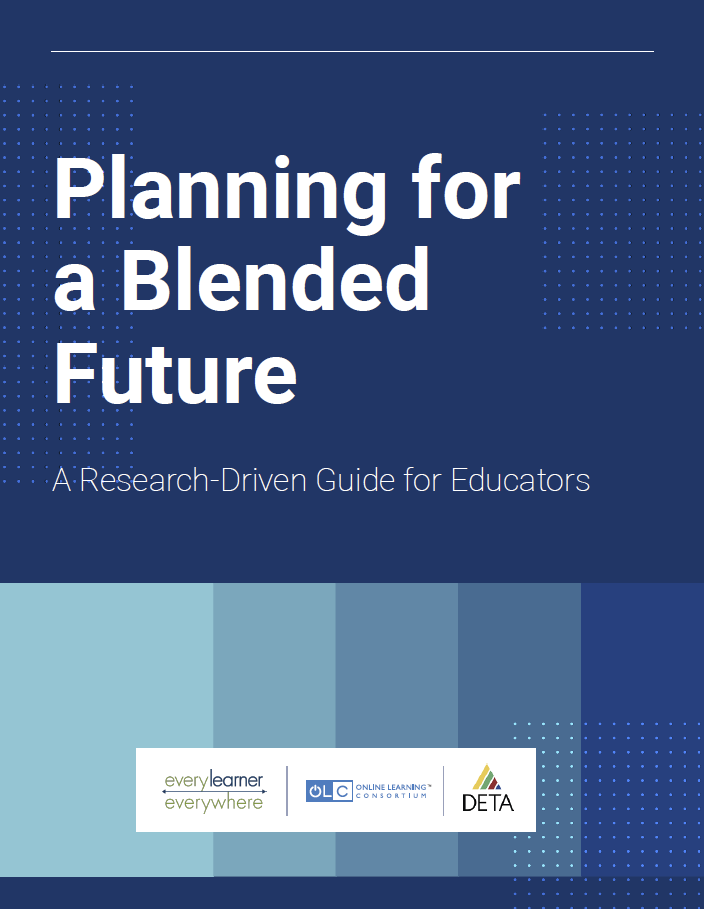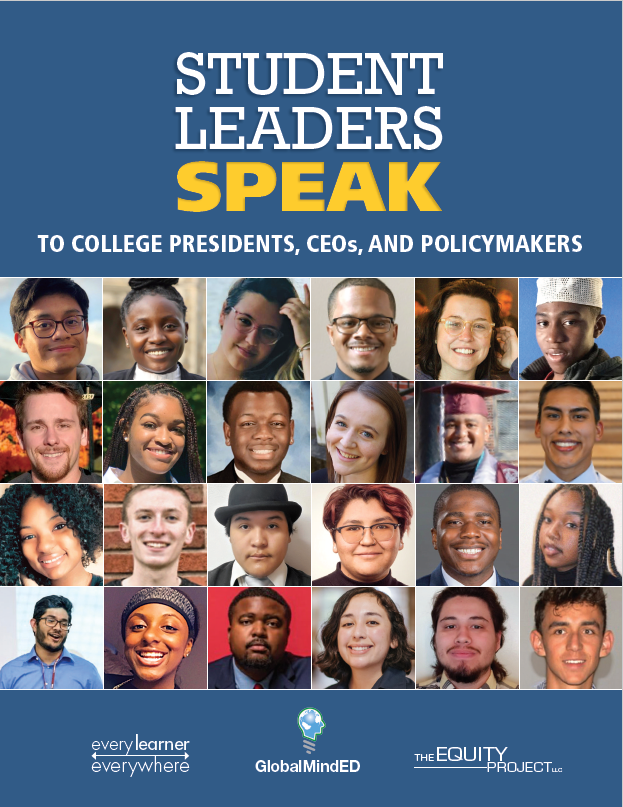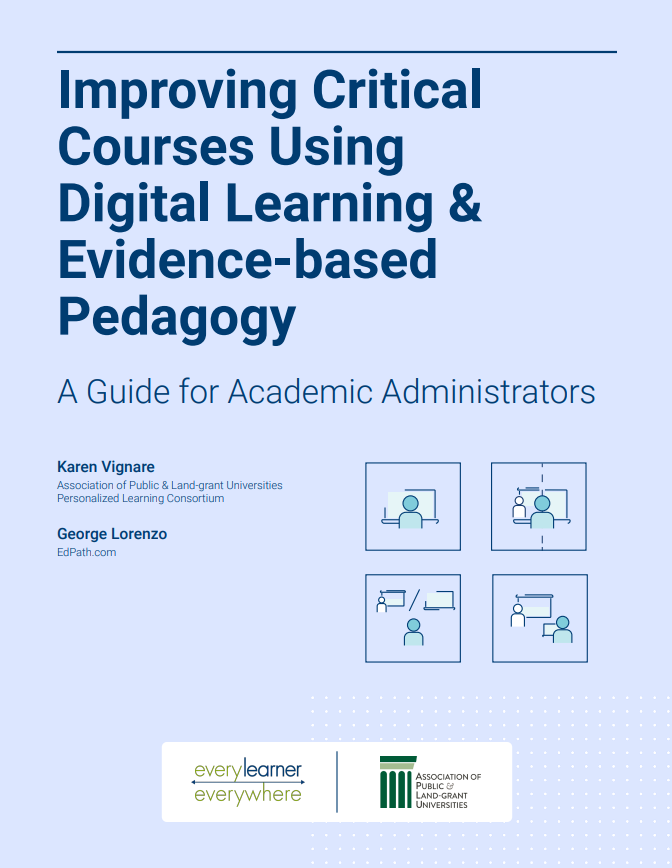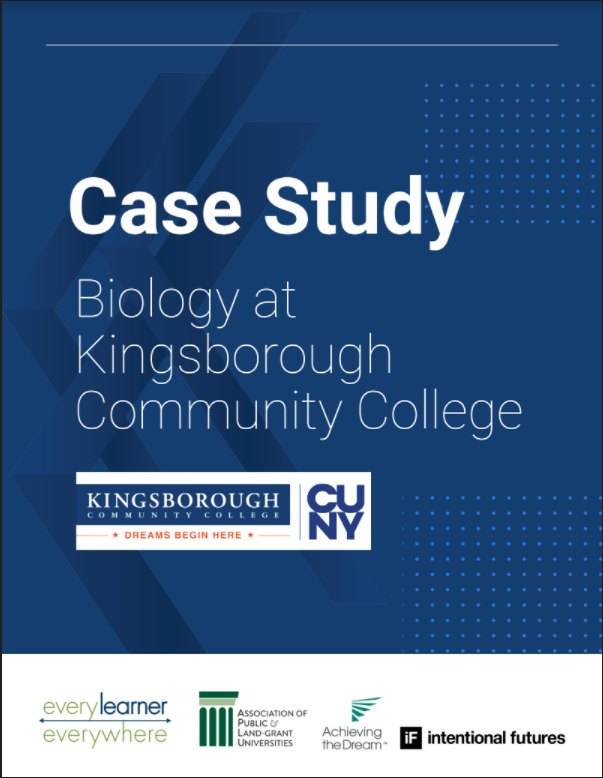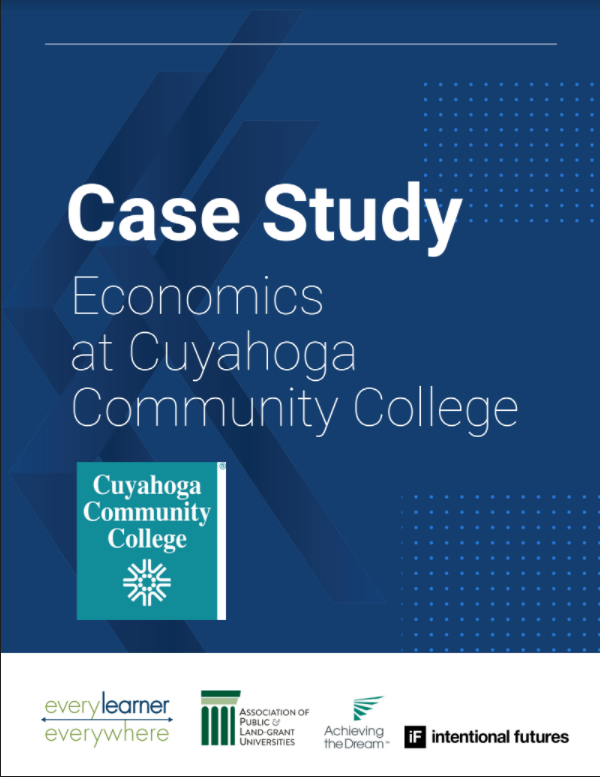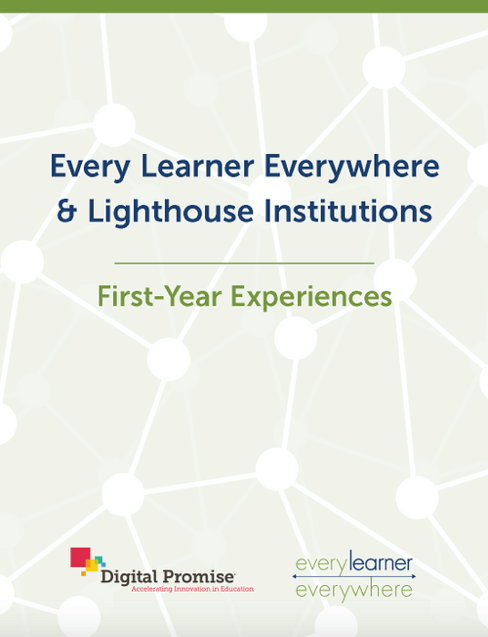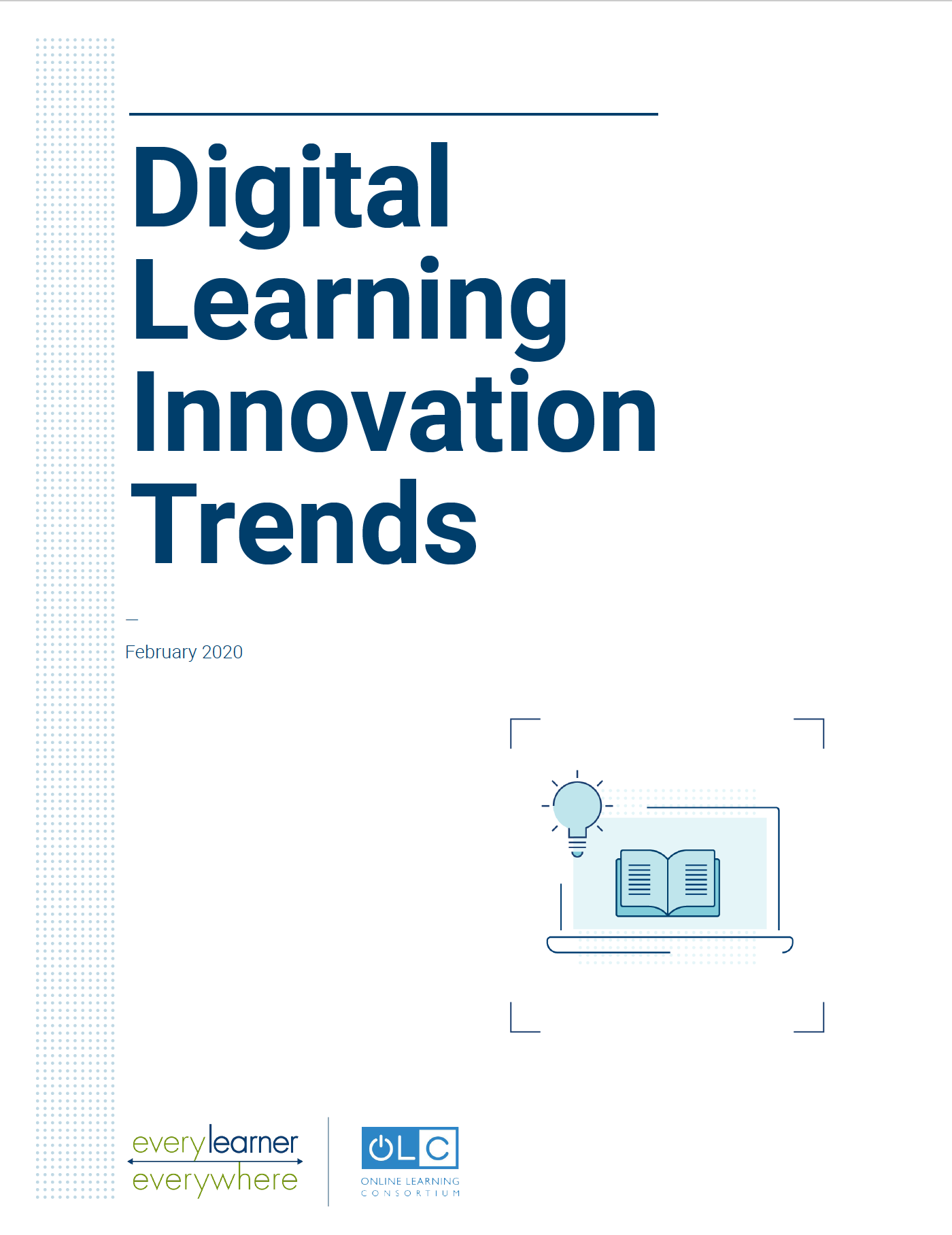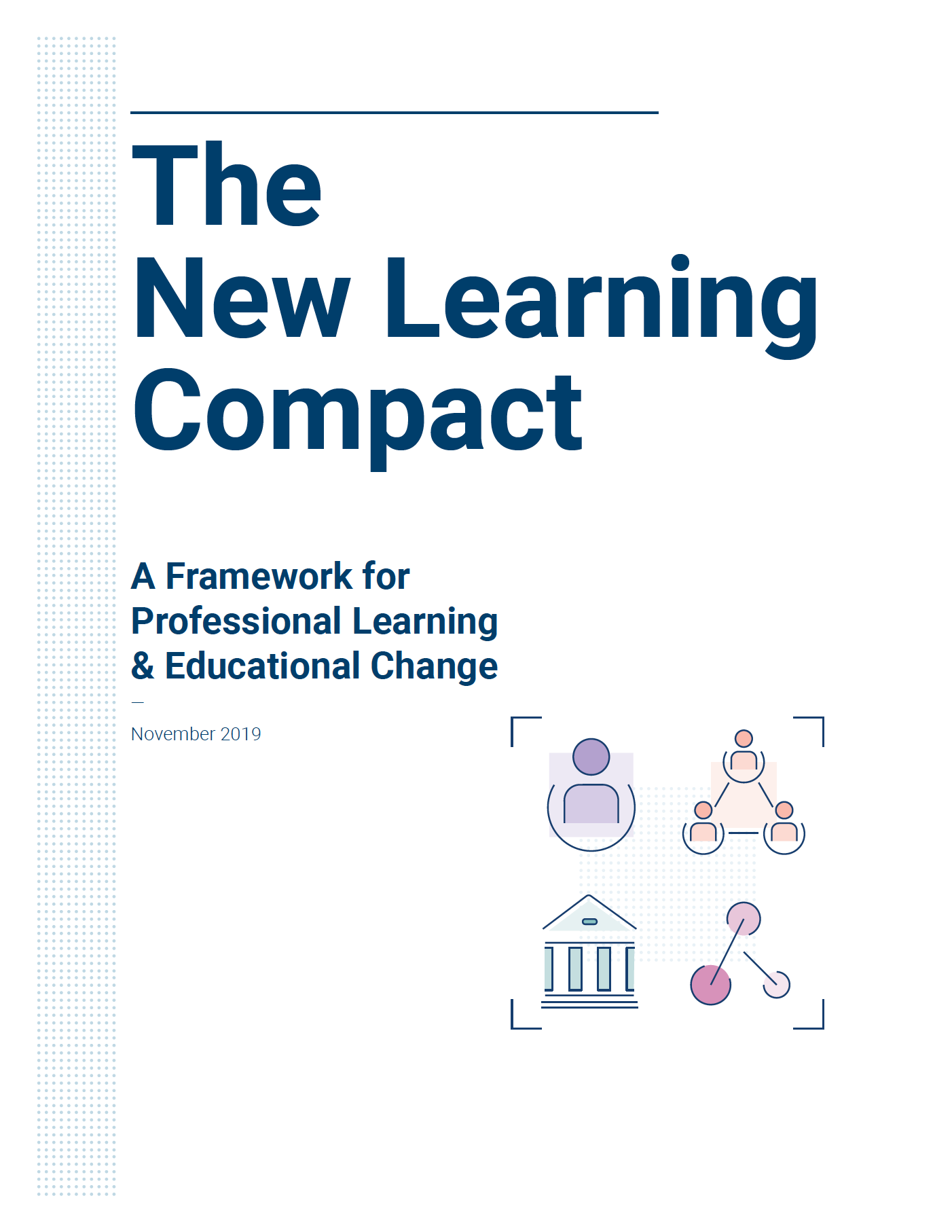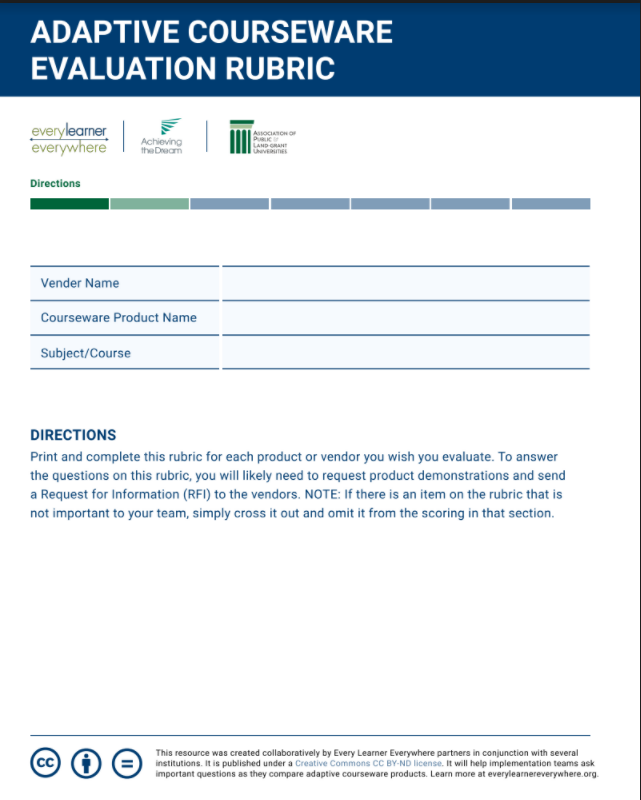Featured Resource
January 2026
This report offers a student-centered examination of generative AI in higher education—not a guide or endorsement, but a record of genuine student inquiry into AI’s potential and limitations. Students are already using AI, regardless of institutional policies. This student research helps faculty understand not just what tools students are using, but how they’re thinking about AI’s role in their education.
All Resources
Materials are freely available on our website and licensed under a Creative Commons Attribution-No Derivatives 4.0 International License, unless otherwise noted. Accessible versions of publications produced before 2025, are available upon request. Please complete this form and Every Learner staff will be in touch. Response times may vary, especially for longer or more complex documents.
View Archived Resource LibraryMarch 2025
As AI becomes increasingly embedded into educational settings and practices, it offers both opportunities and challenges. This comprehensive resource will help navigate both aspects — demonstrating how AI can help overcome technology barriers, including various recommendations for integrating accessible AI across different areas of higher education.
January 2025
This profile examines the culture at Hispanic Serving Institutions as well as opportunities and challenges around digital learning at HSIs. Our research uncovered that students at HSIs valued experiences that celebrate Hispanic and Latino culturas (cultures), nurture bonds among and service to the Hispanic comunidad (community), and demonstrated the institution’s intención (intention) to serve Latino students.
January 2025
This profile examines the culture at TCUs. Tribal leaders, historians, educational researchers, and journalists have noted the unique role of these institutions that center on preservation and revitalization of tribal bonds as well as preservation and revitalization of the knowledge and culture of the first nations.
August 2024
In this new resource, 12 instructors from a variety of two-year and four-year institutions share their experiences adopting digital learning tools to promote equity and improve learning outcomes for historically marginalized and under-resourced students. Their narratives highlight successes as well as bumps in the road as they implemented digital learning tools into their teaching.
September 2023
Tyton partners’ Listening to Learners 2023 reveals that while 70% of students value representative diversity among advisors, only 30% of institutions report scaled implementation of this hr practice. Cutting-edge research identifies strategies to enhance student outcomes and create a sense of belonging in higher education.
August 2023
This guide presents results from an analysis of 100 academic continuity plans at U.S. colleges and universities. The results form the basis for recommended academic continuity plan best practices, tools, and templates academic leaders can use to maintain a plan that can be used in both short-term and long-term circumstances.
June 2023
This 2023 study – the largest and longest running study monitoring digital learning in higher education – aims to identify the differences between student and institutional stakeholder experiences and preferences to suggest ways institutions and solution providers can address these differences.
July 2022
Time for Class 2022 examines how faculty and institutional leaders are using instructional materials to implement teaching practices that can improve student learning and outcomes, especially for students historically underserved by higher education. This report reviews how digital learning in high-enrollment introductory courses can enable instructors to incorporate evidence-based teaching practices and work to close equity gaps in courses.
June 2022
Colleges and universities can help alleviate the burden students face every day, including restructuring mental health support on campus, providing options for digital learning, encouraging teachers to apply trauma-informed teaching practices, and connecting students with the resources they need to thrive.
April 2022
The equity review tool is designed for educators striving to create more validating and affirming learning experiences and environments for students. Using this tool, educators will be able to develop and evaluate their resources and the language they use to ensure they are asset-based and supportive of a more equitable teaching and learning process.
January 2022
This report focuses on building the core infrastructure needed for high-quality digital learning and is designed primarily for a mid- to senior-level academic administrators including department chairs, leaders of centers of teaching and learning, technology leaders, and academic leadership.
October 2021
The study suggests that adaptive learning technology helped students who need support with prerequisite concepts, provided tools to help guide students through complex, multistep processes, gave faculty insights into concepts students were struggling with, and reduced the cost of course materials.
October 2021
This case study examines the efforts at three of the seven ATD network colleges participating in the Every Learner Everywhere® initiative who focused on these disciplines as part of their efforts to implement adaptive courseware as a tool in gateway courses to help more students persist and succeed.
August 2021
Lessons Learned is made up of over 30 recommendations for improving practices in higher education. It asks where unexpected benefits showed themselves among the forced necessity of emergency remote teaching, and it encourages faculty, administrators, and academic and student support colleagues to continue collaborating to remove barriers, improve access, and update methods and tools.

